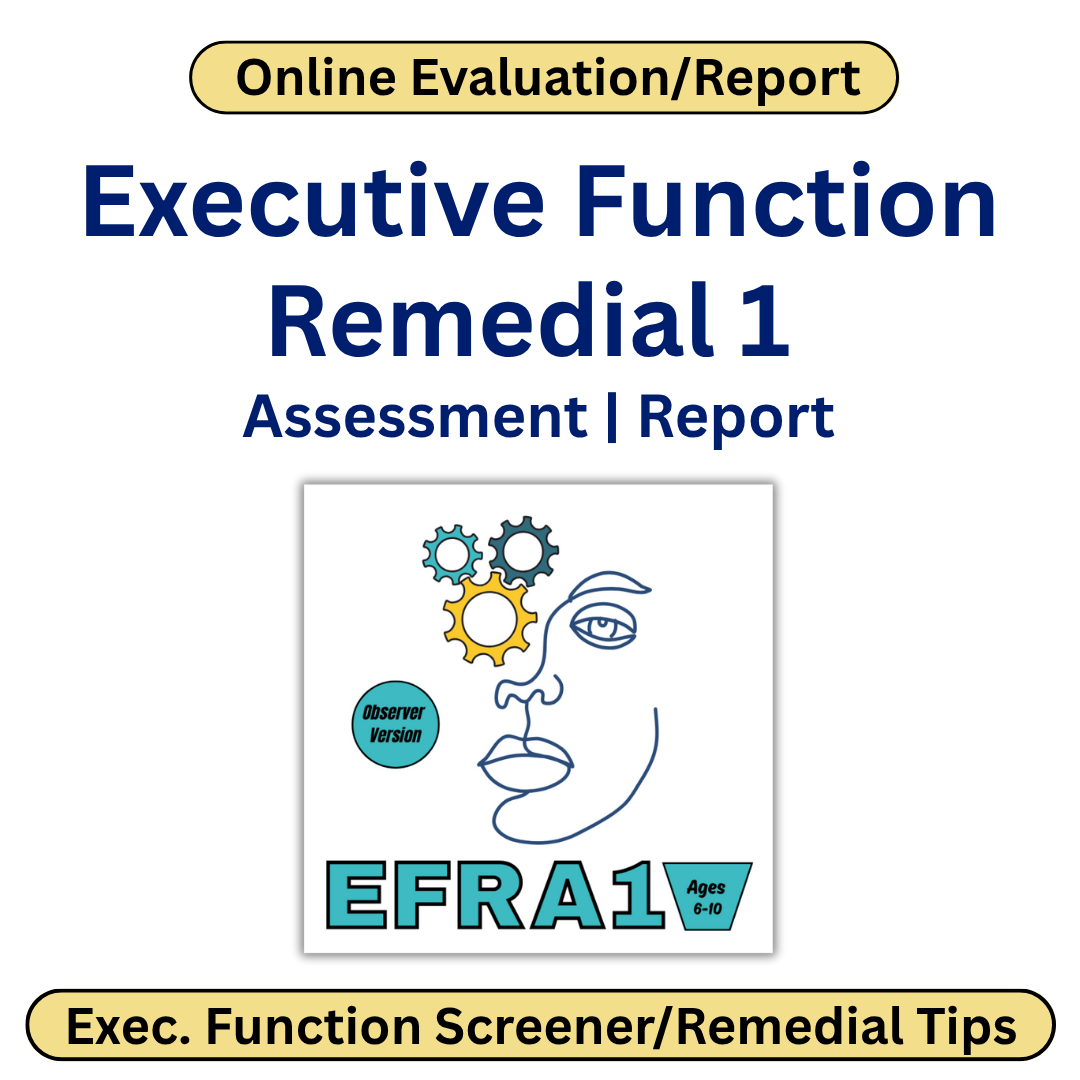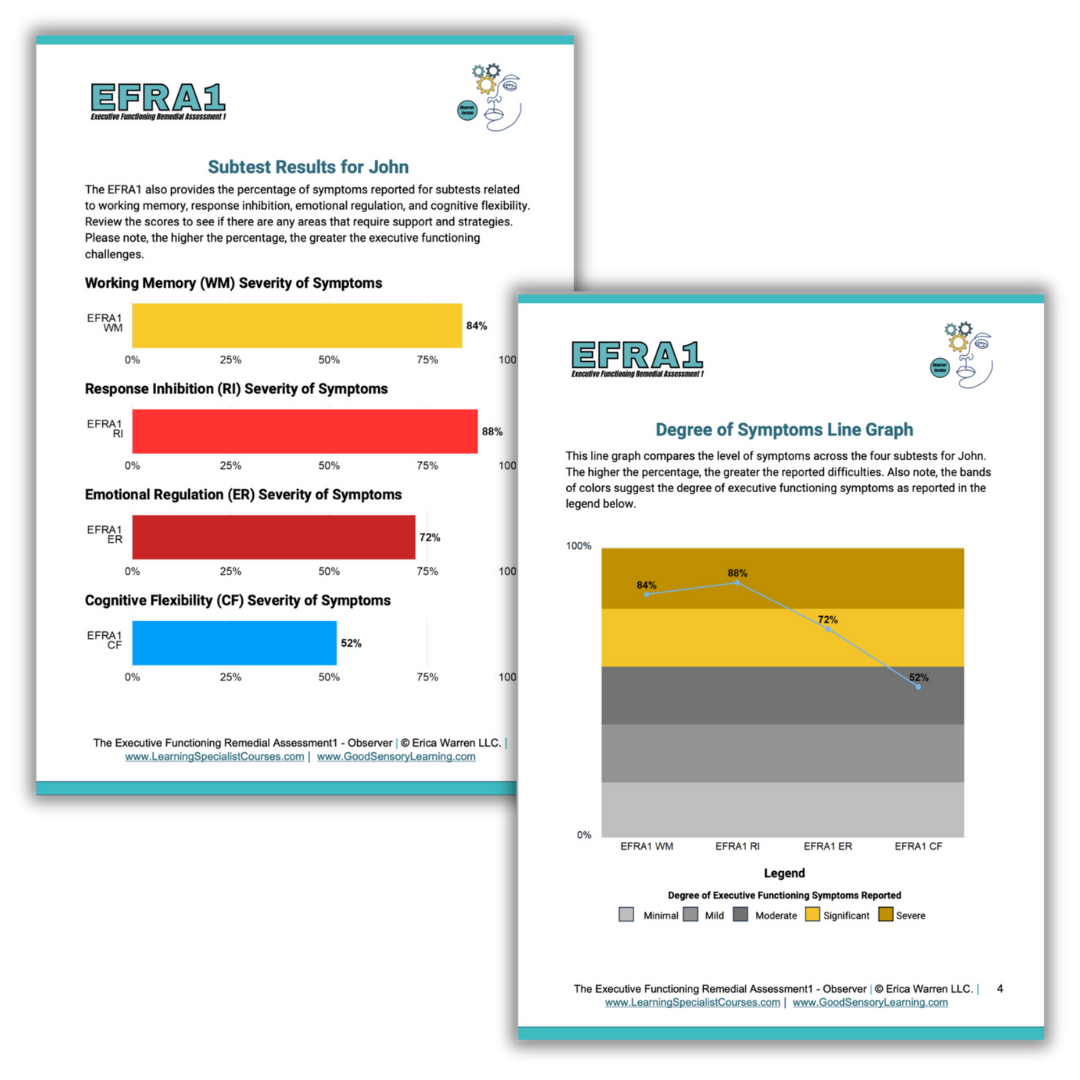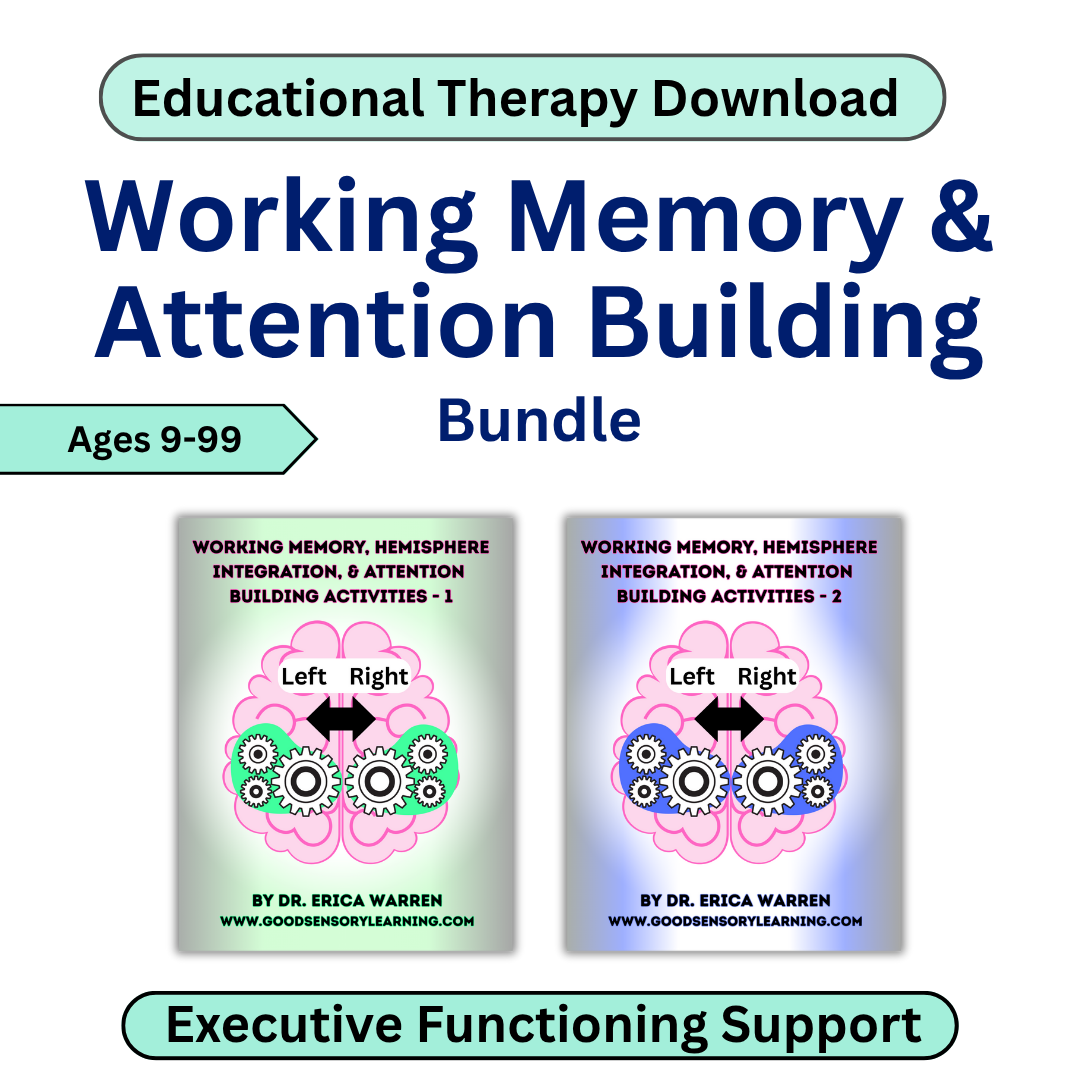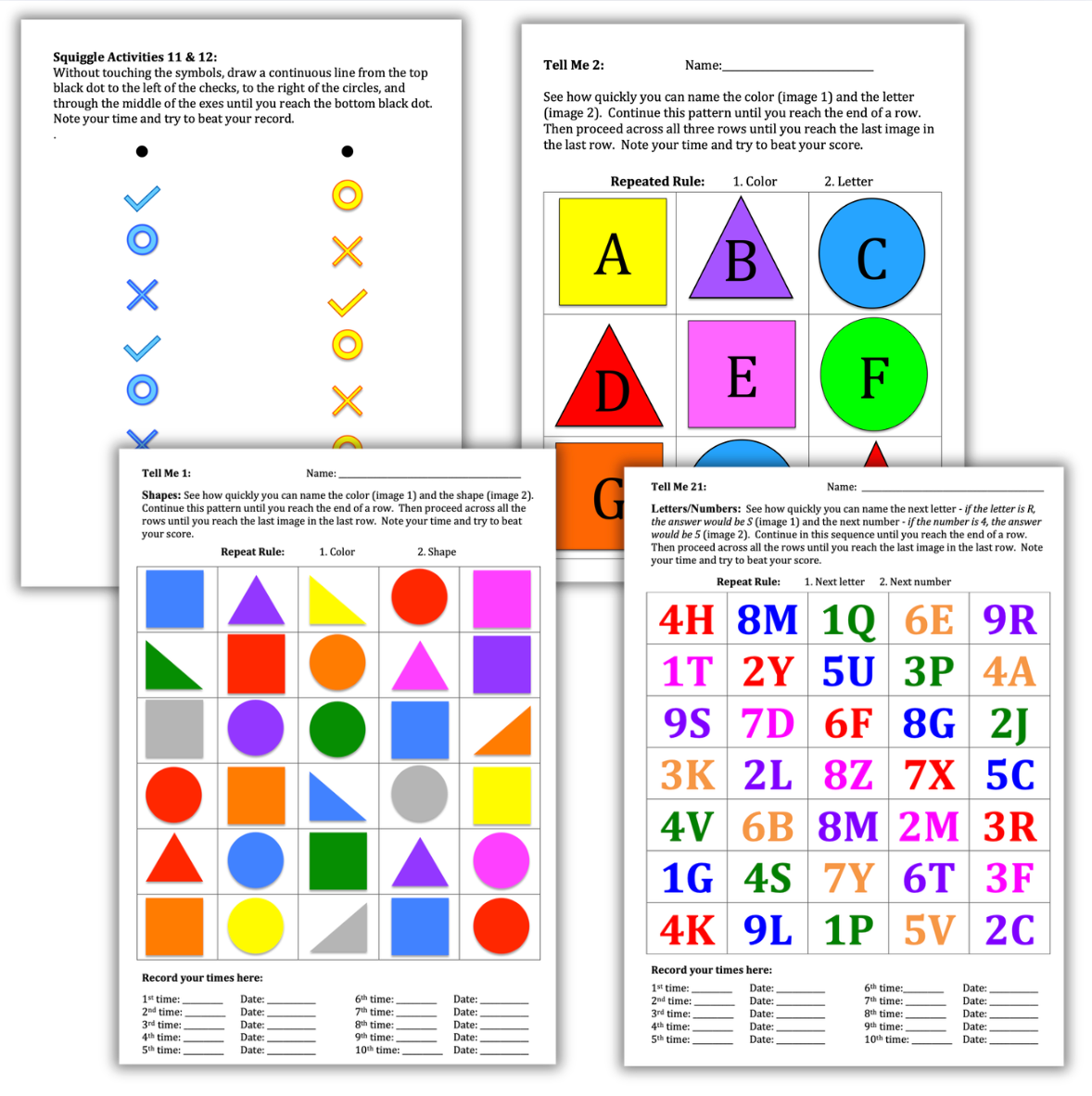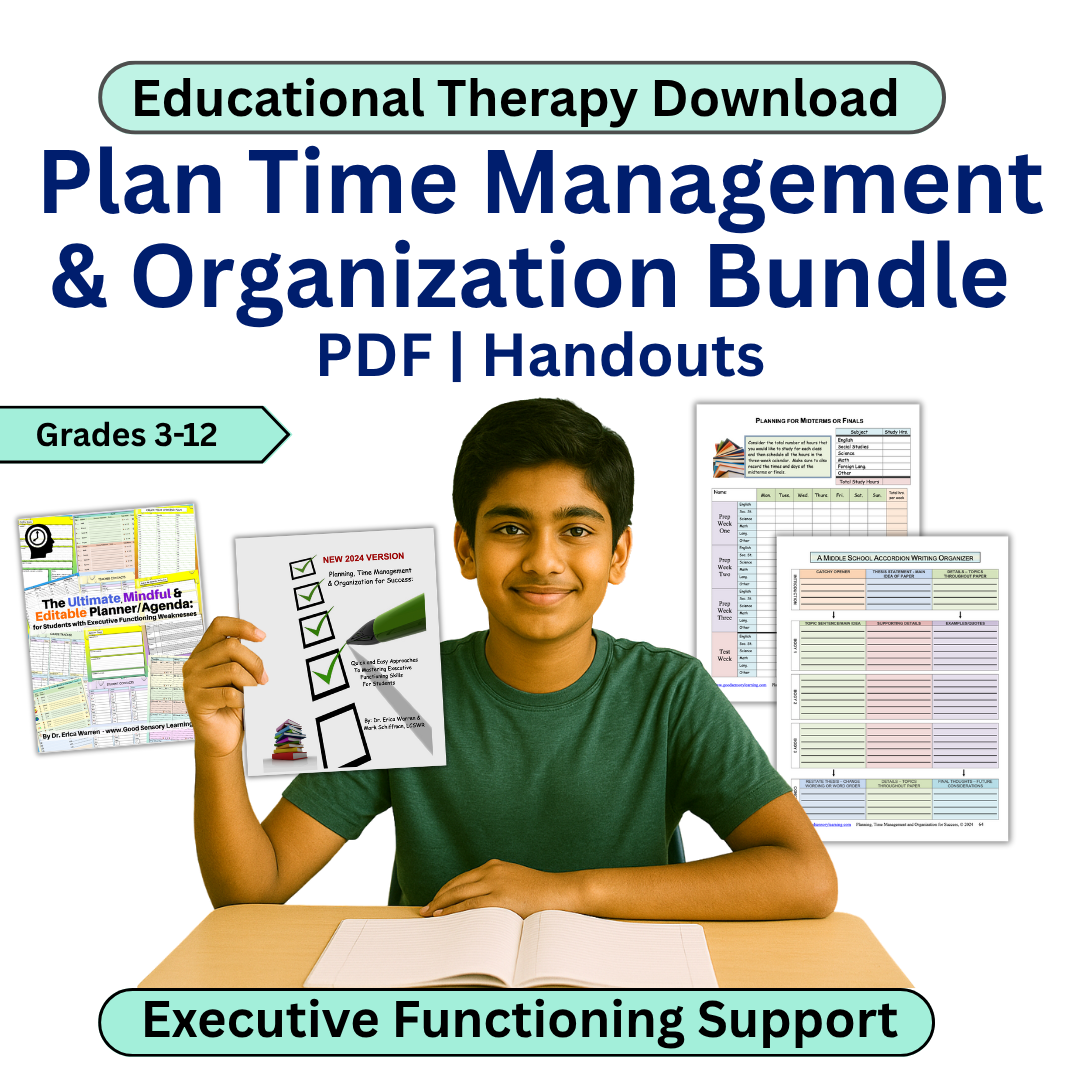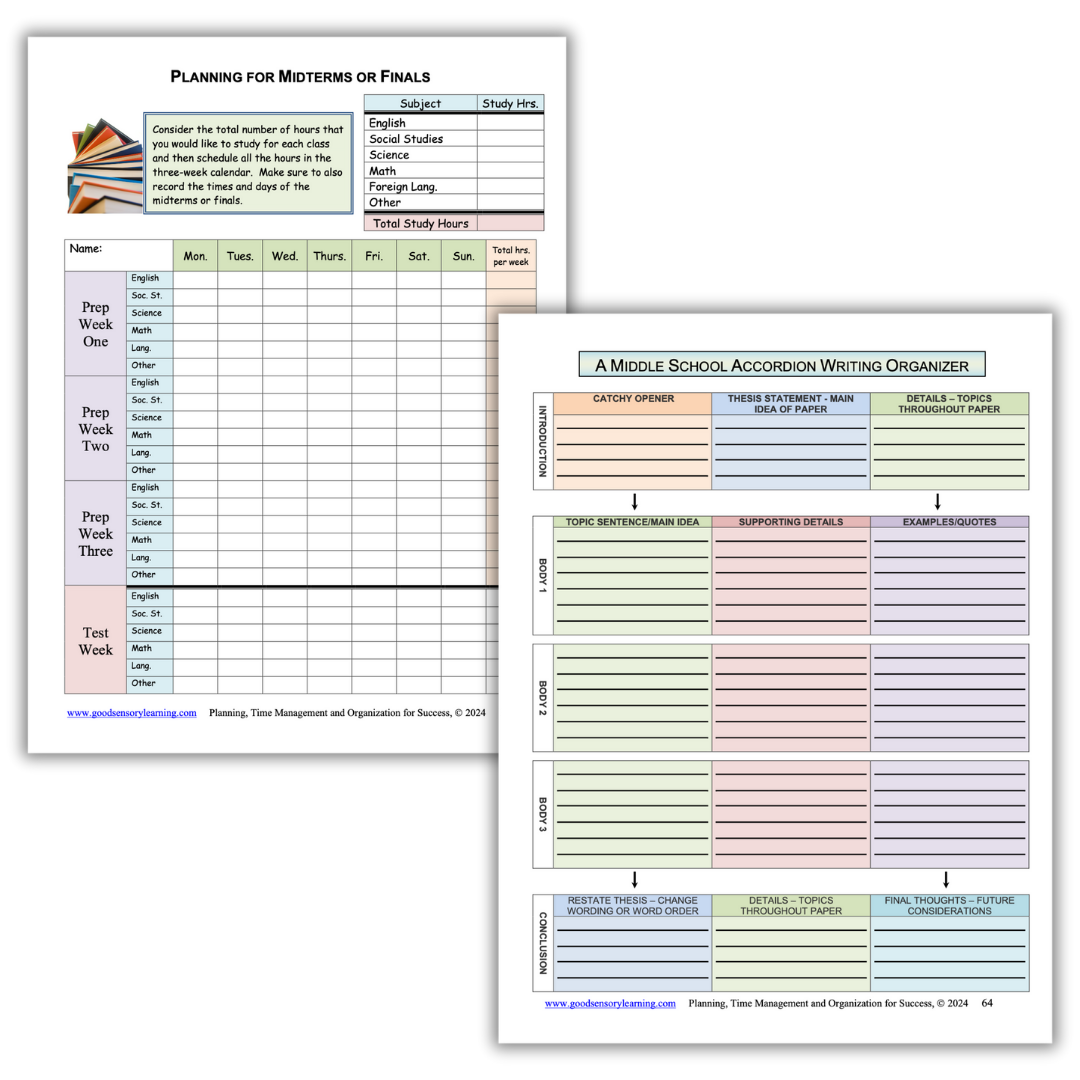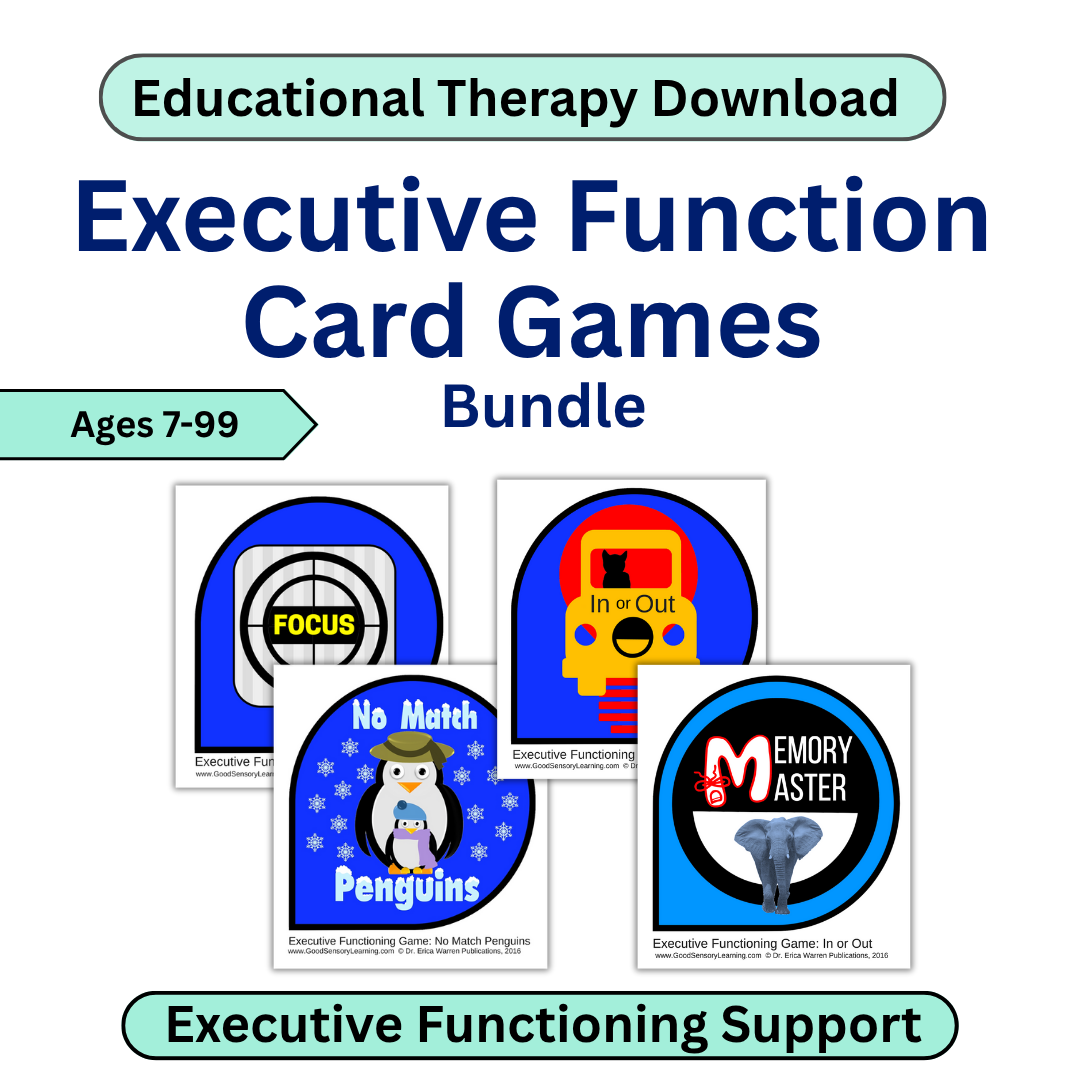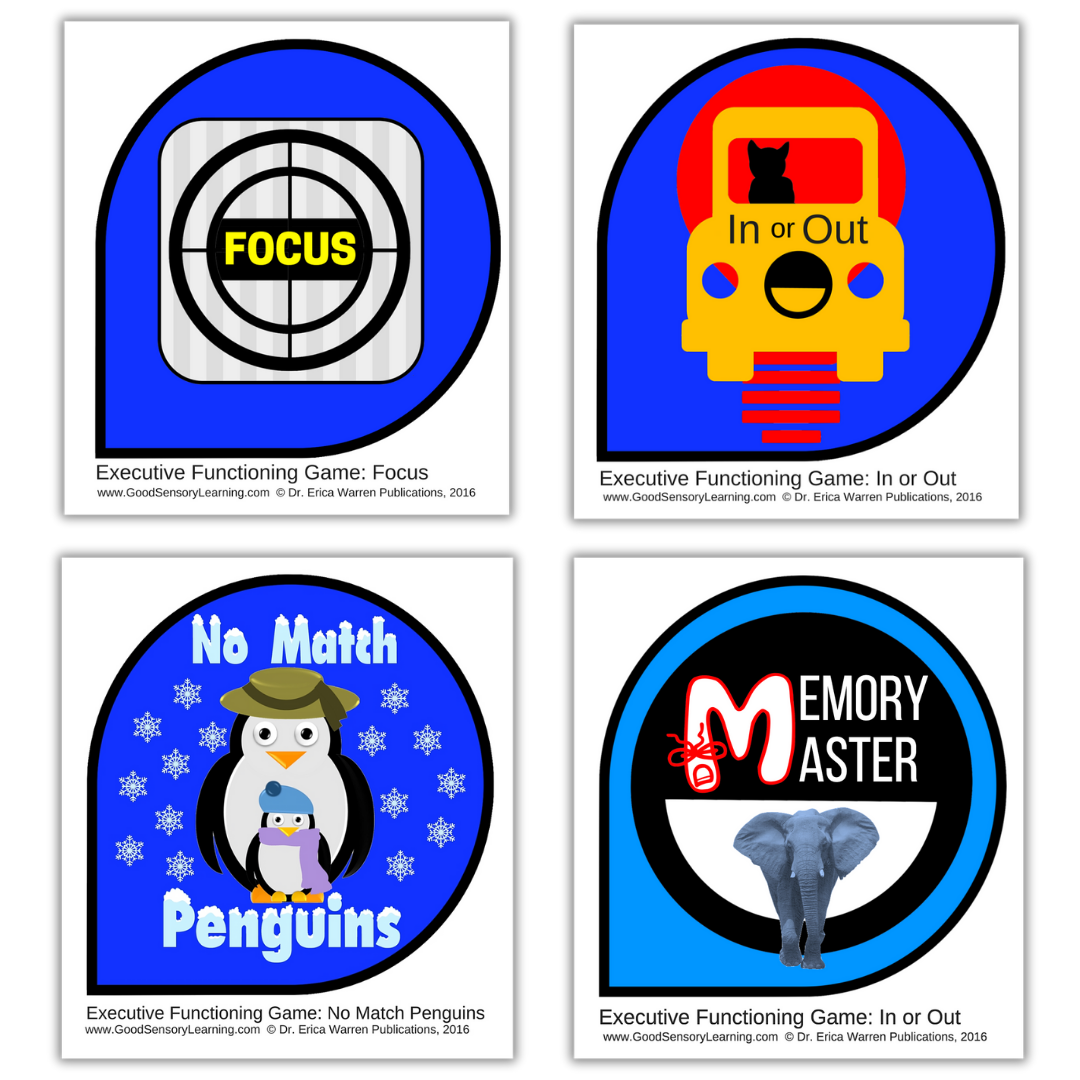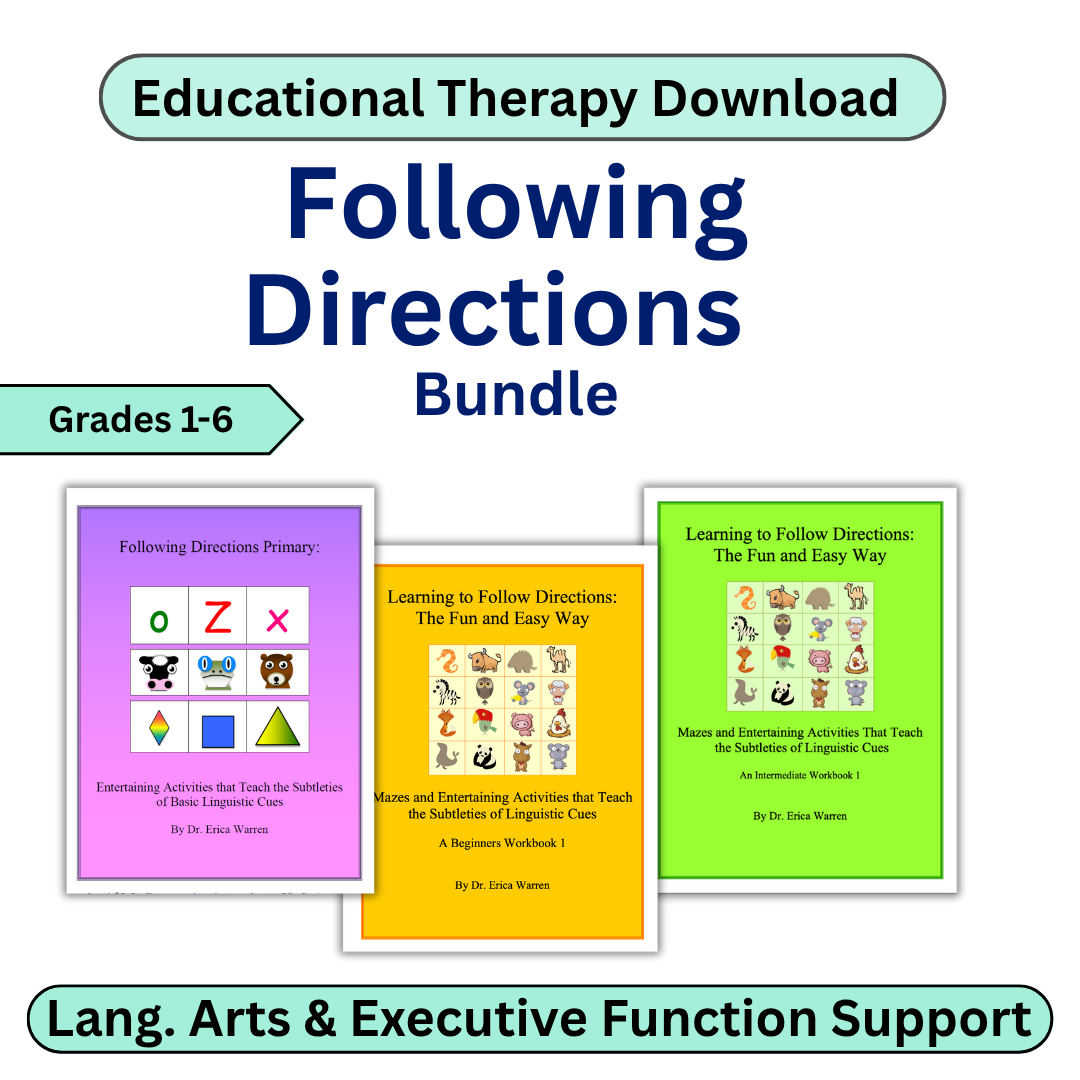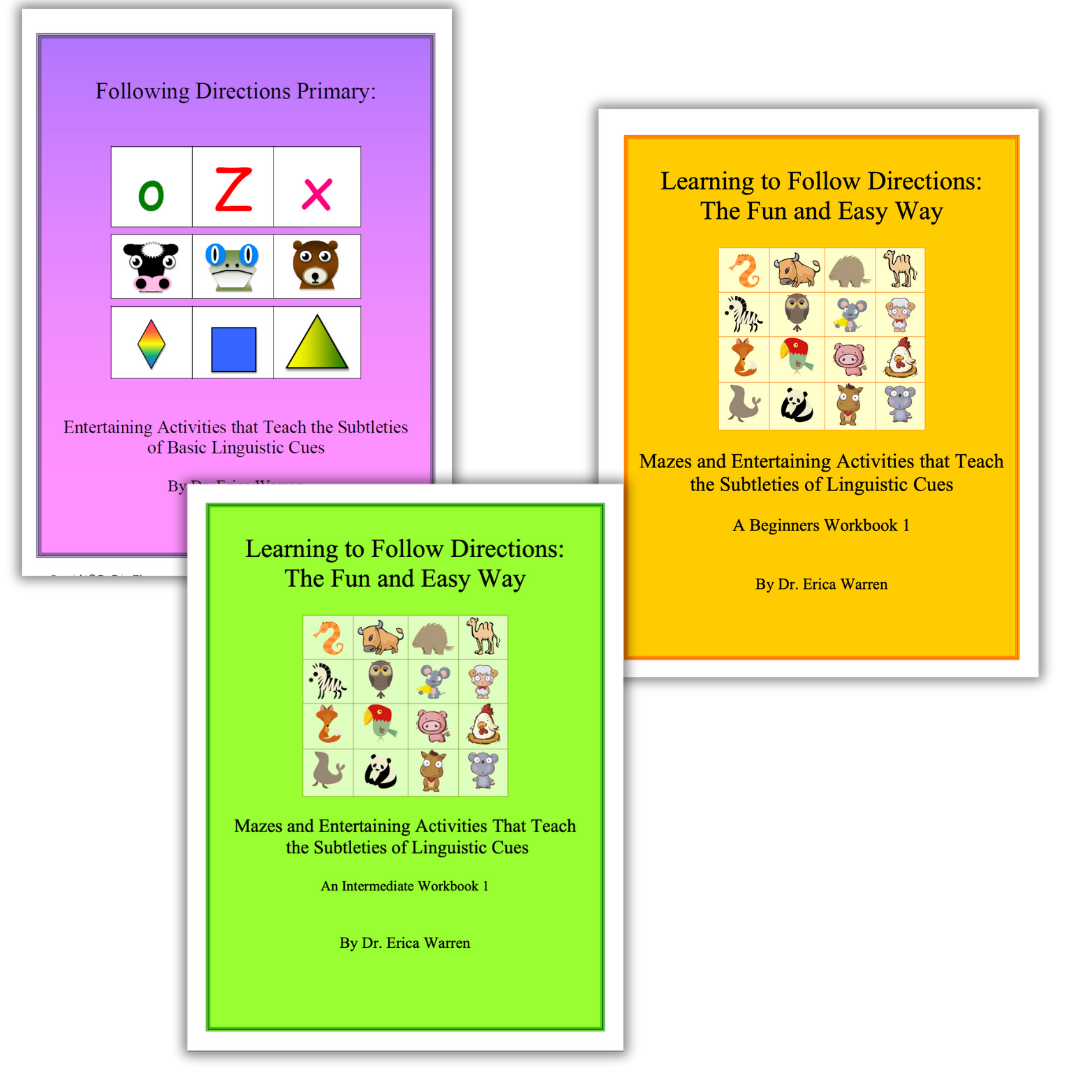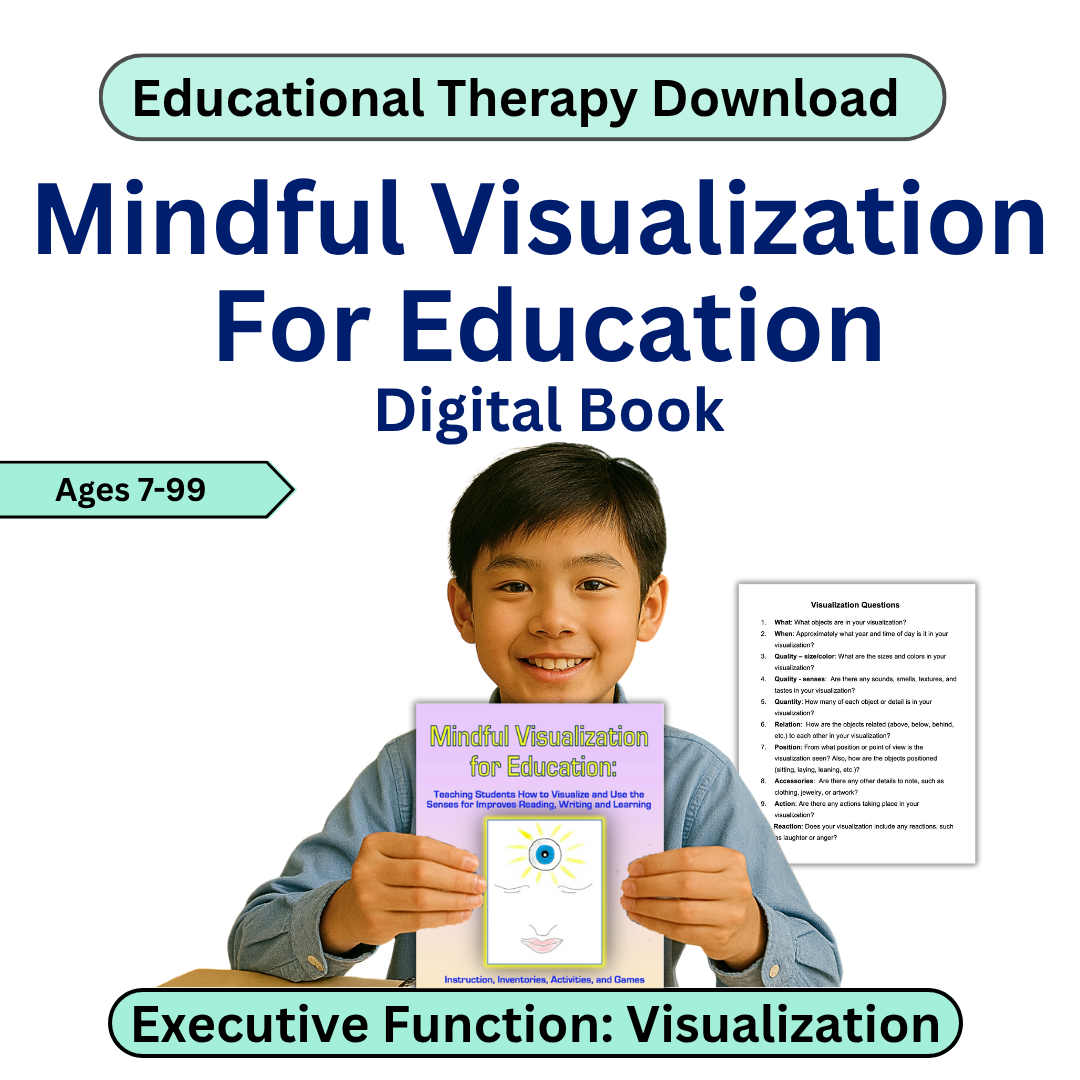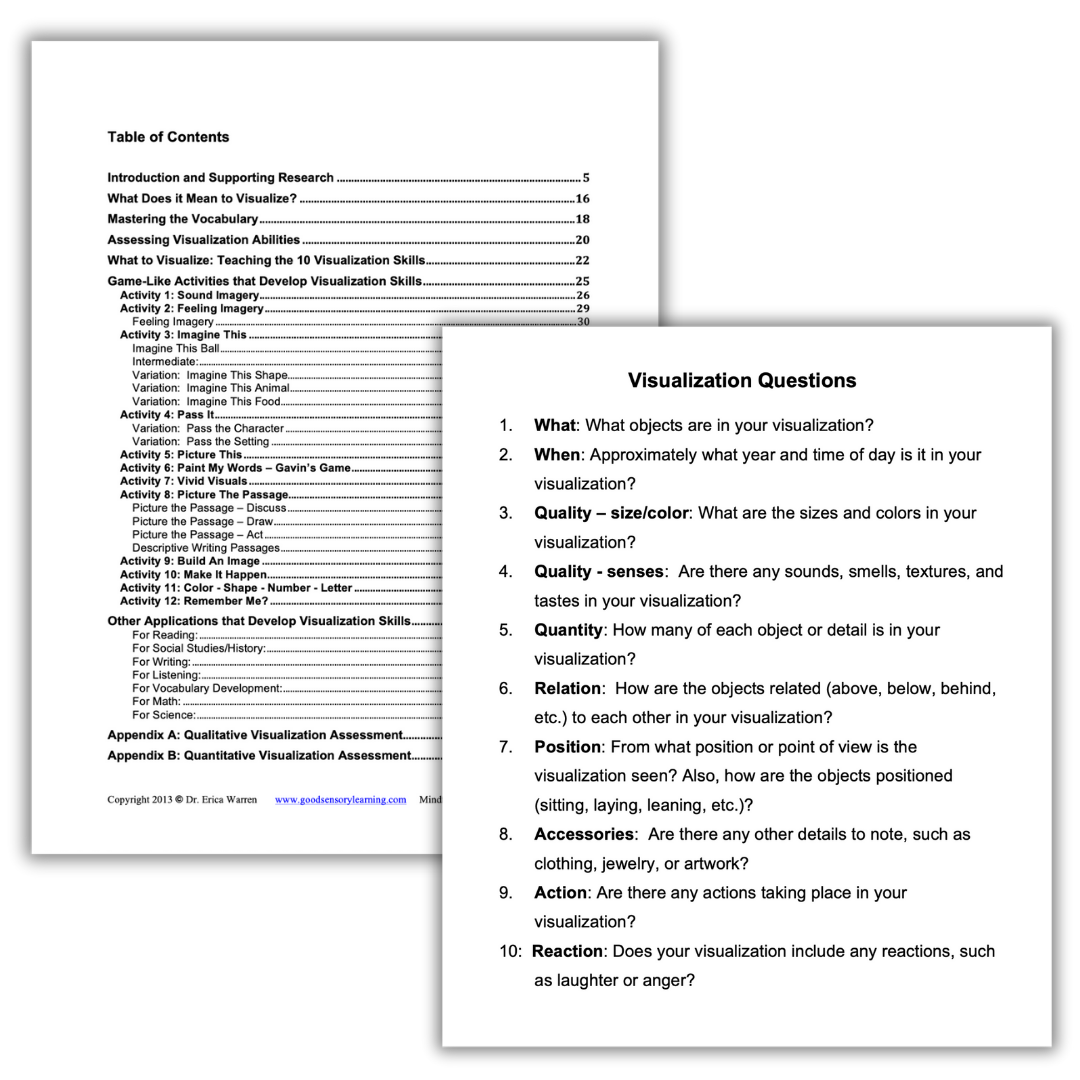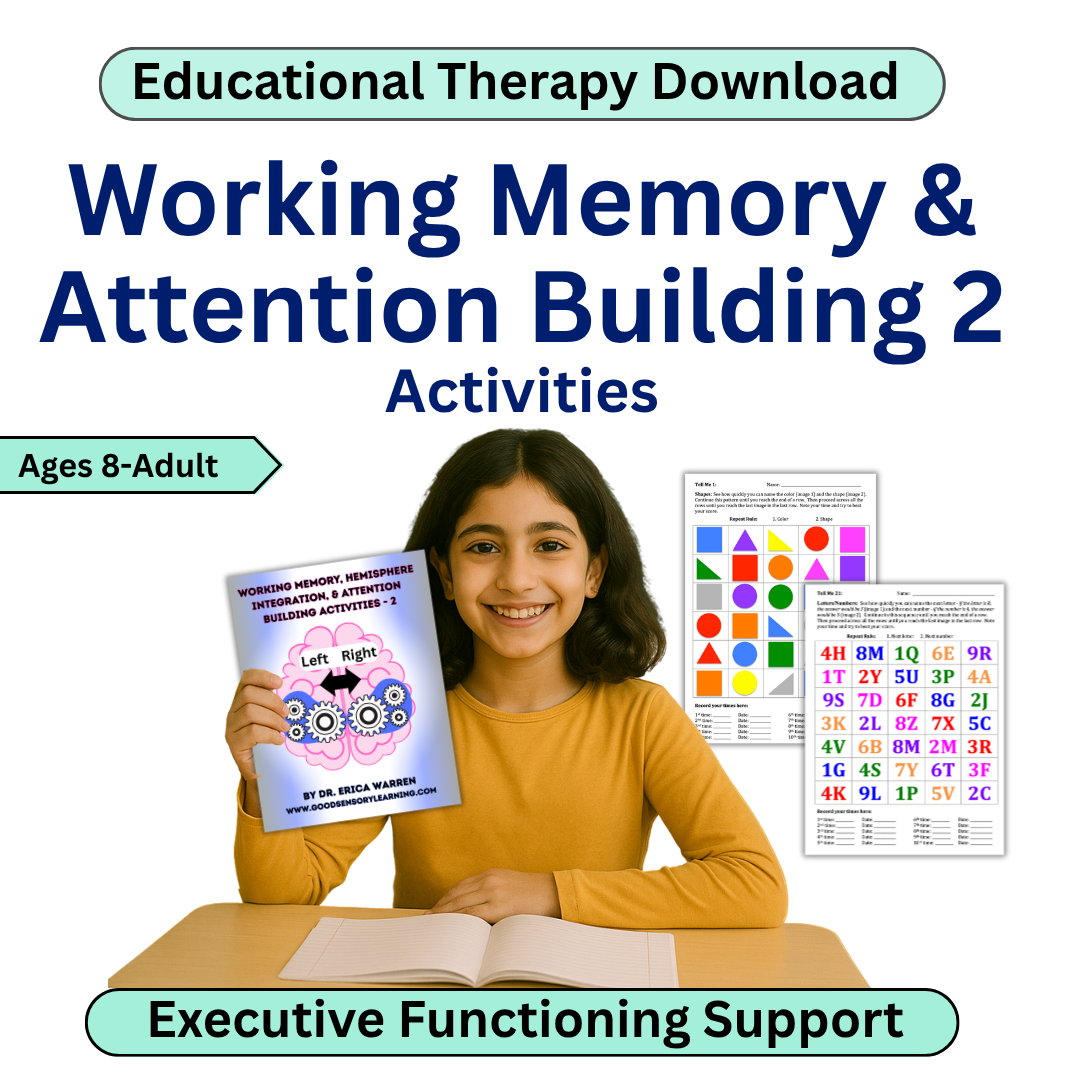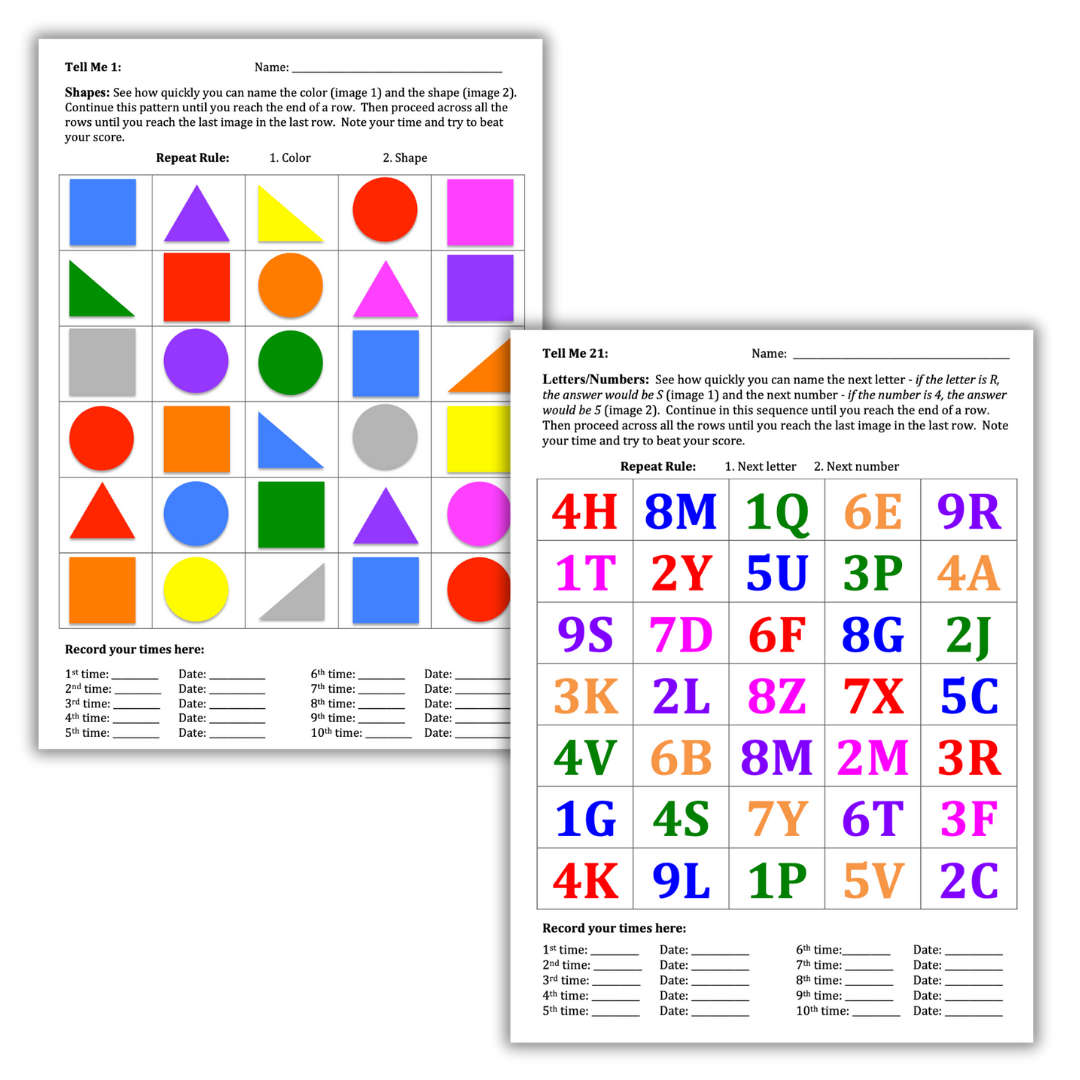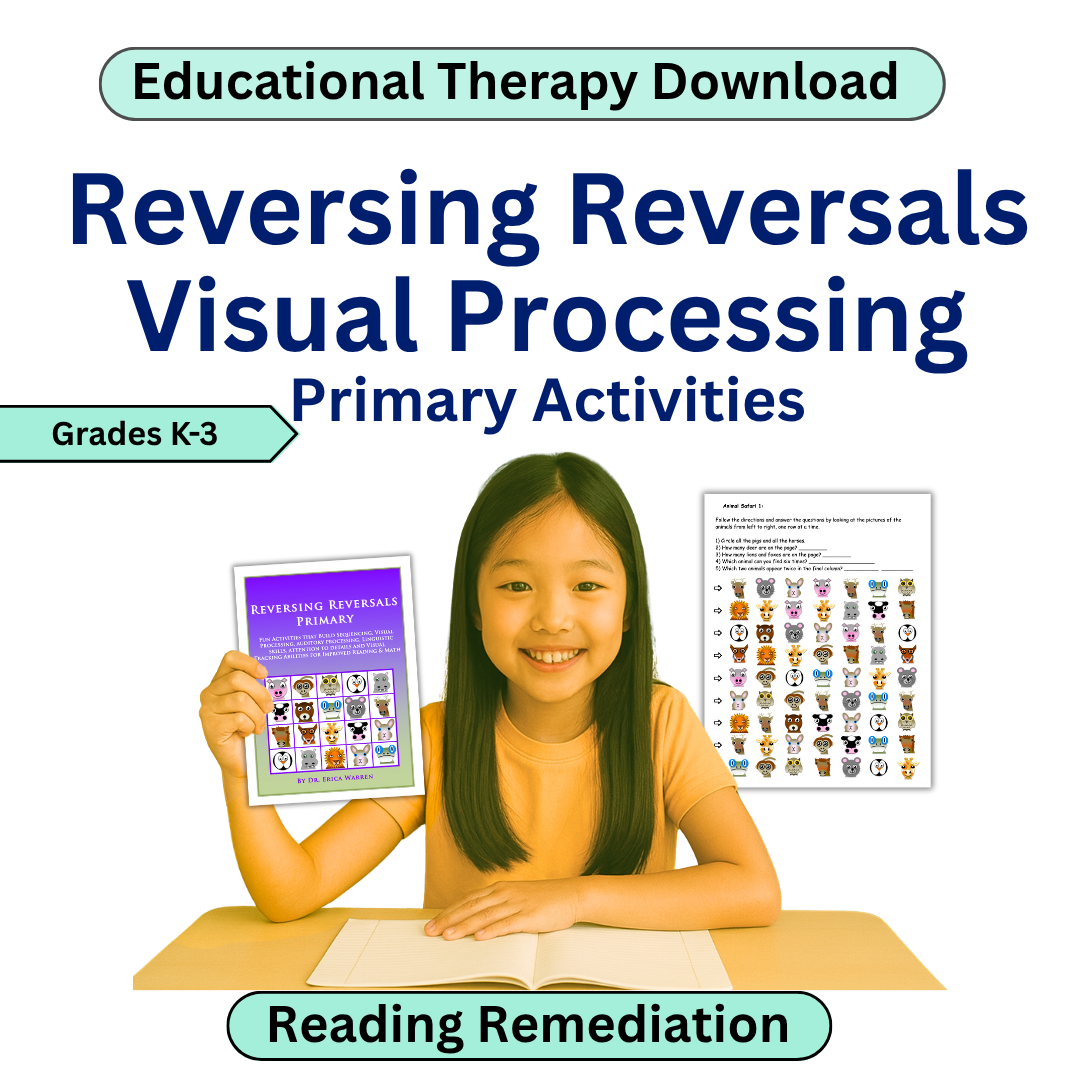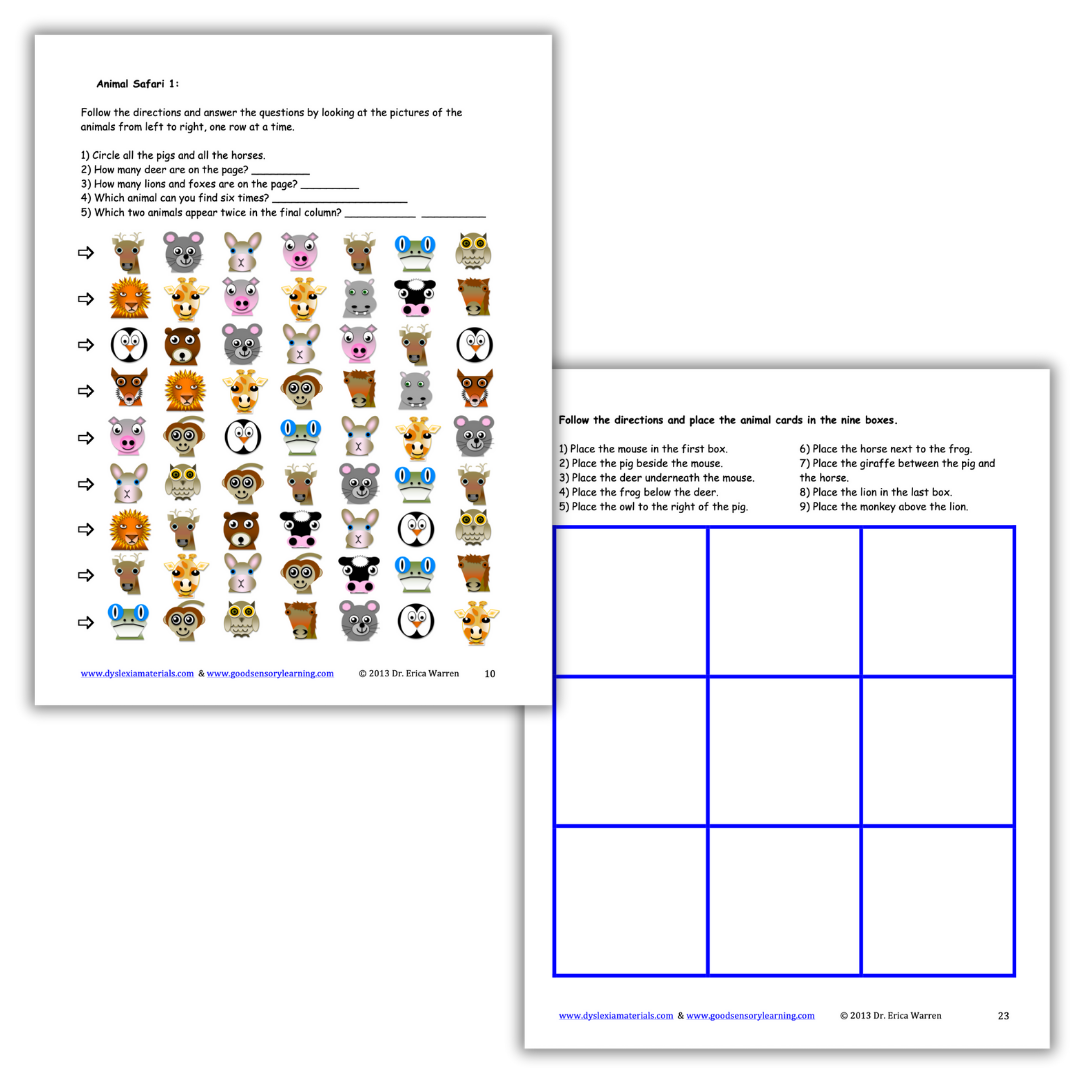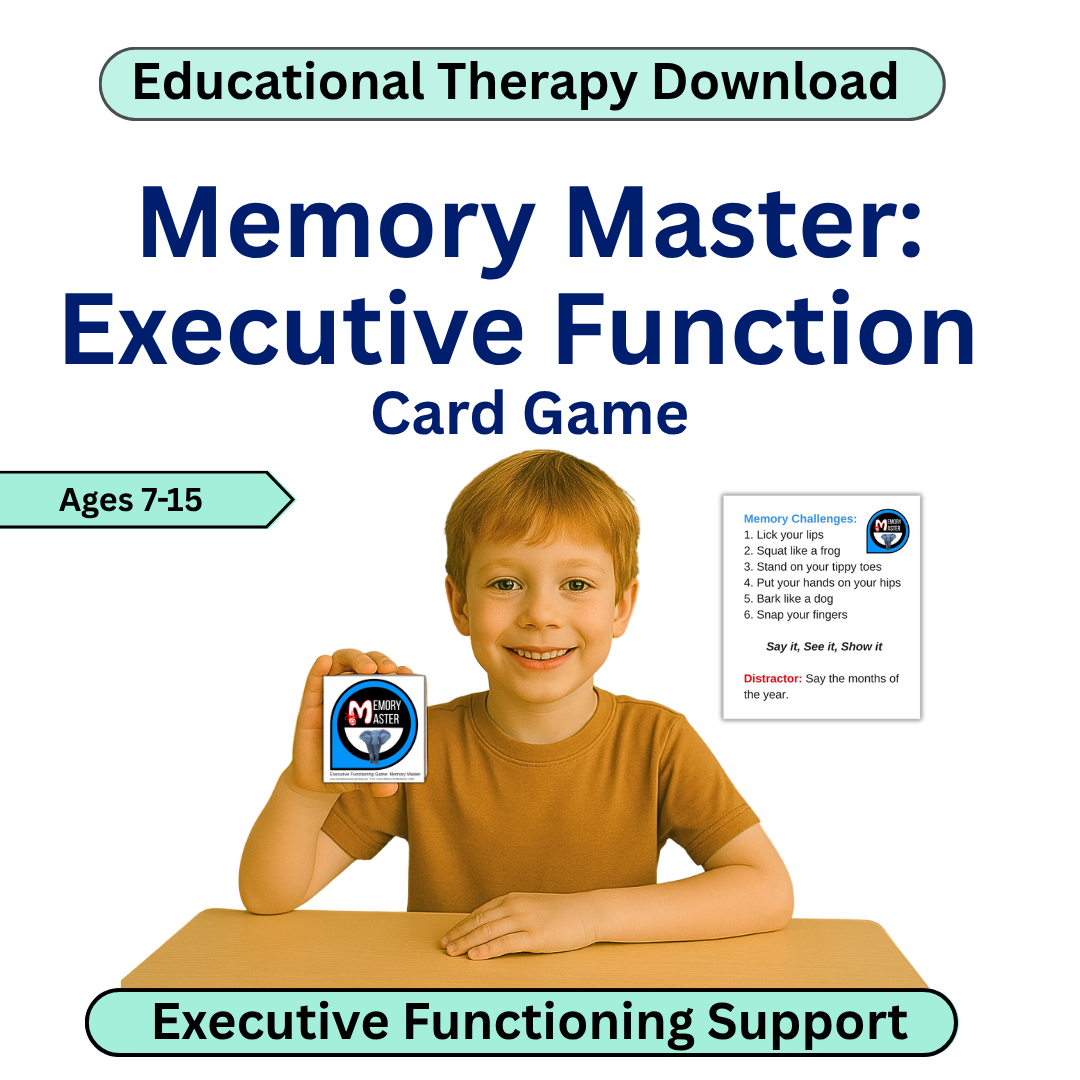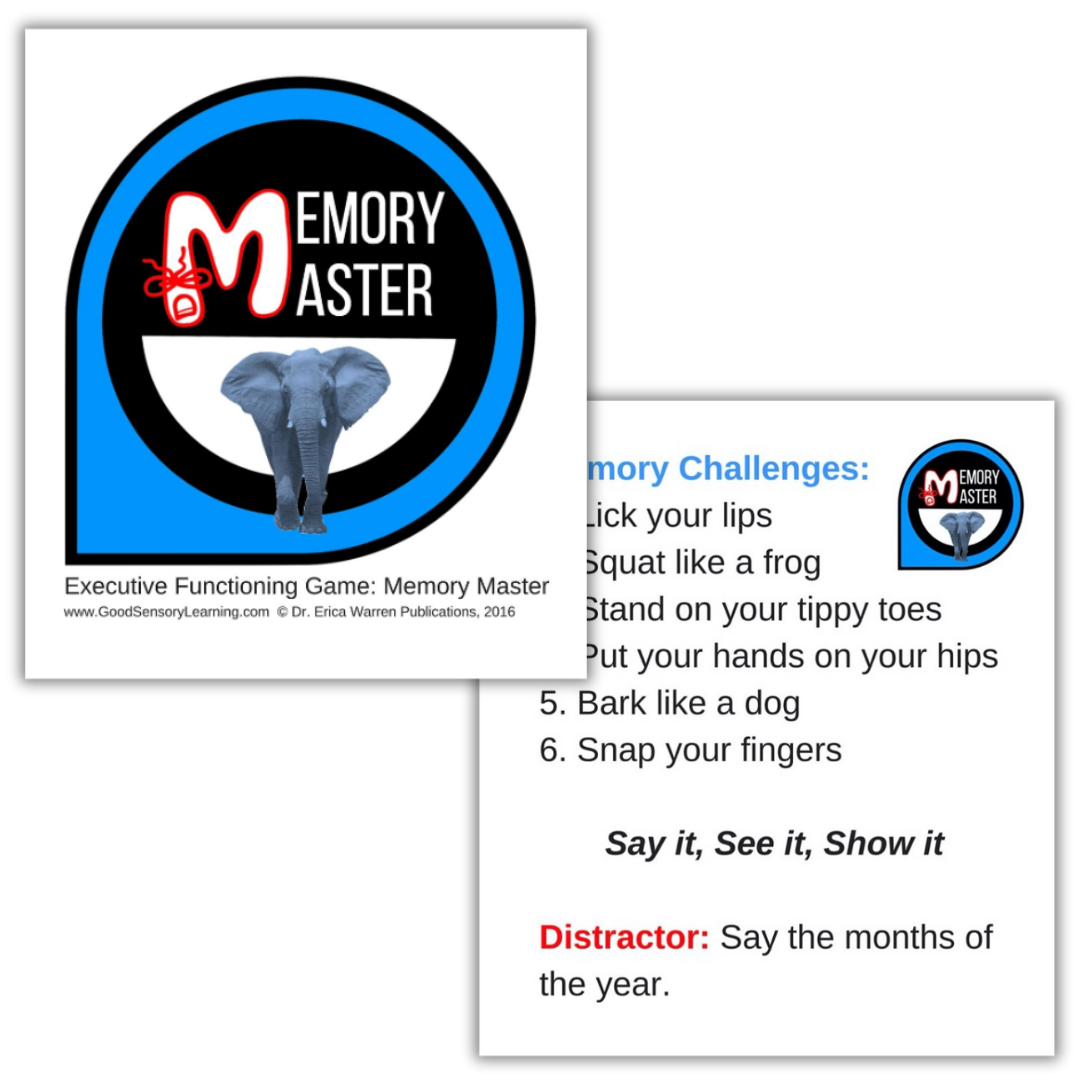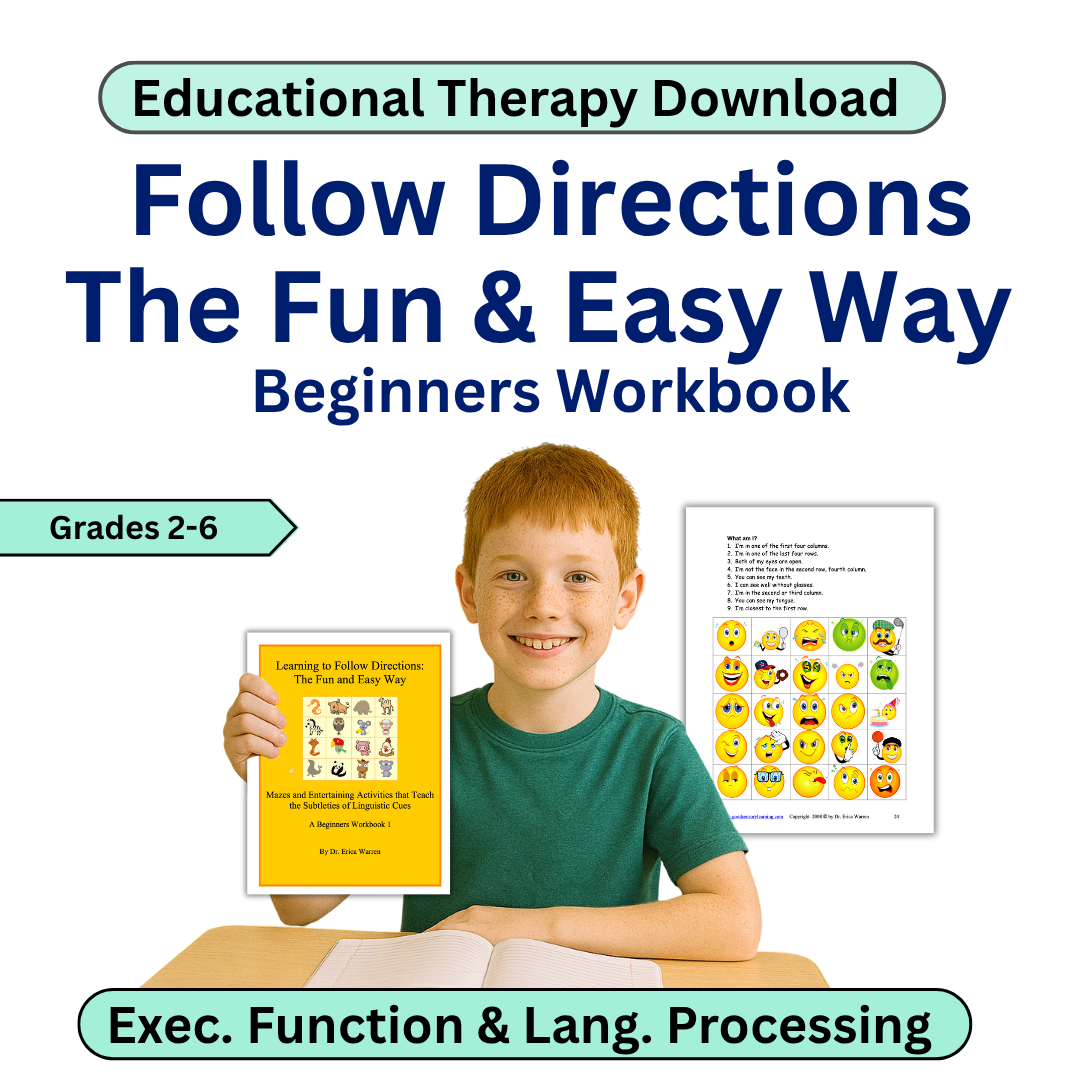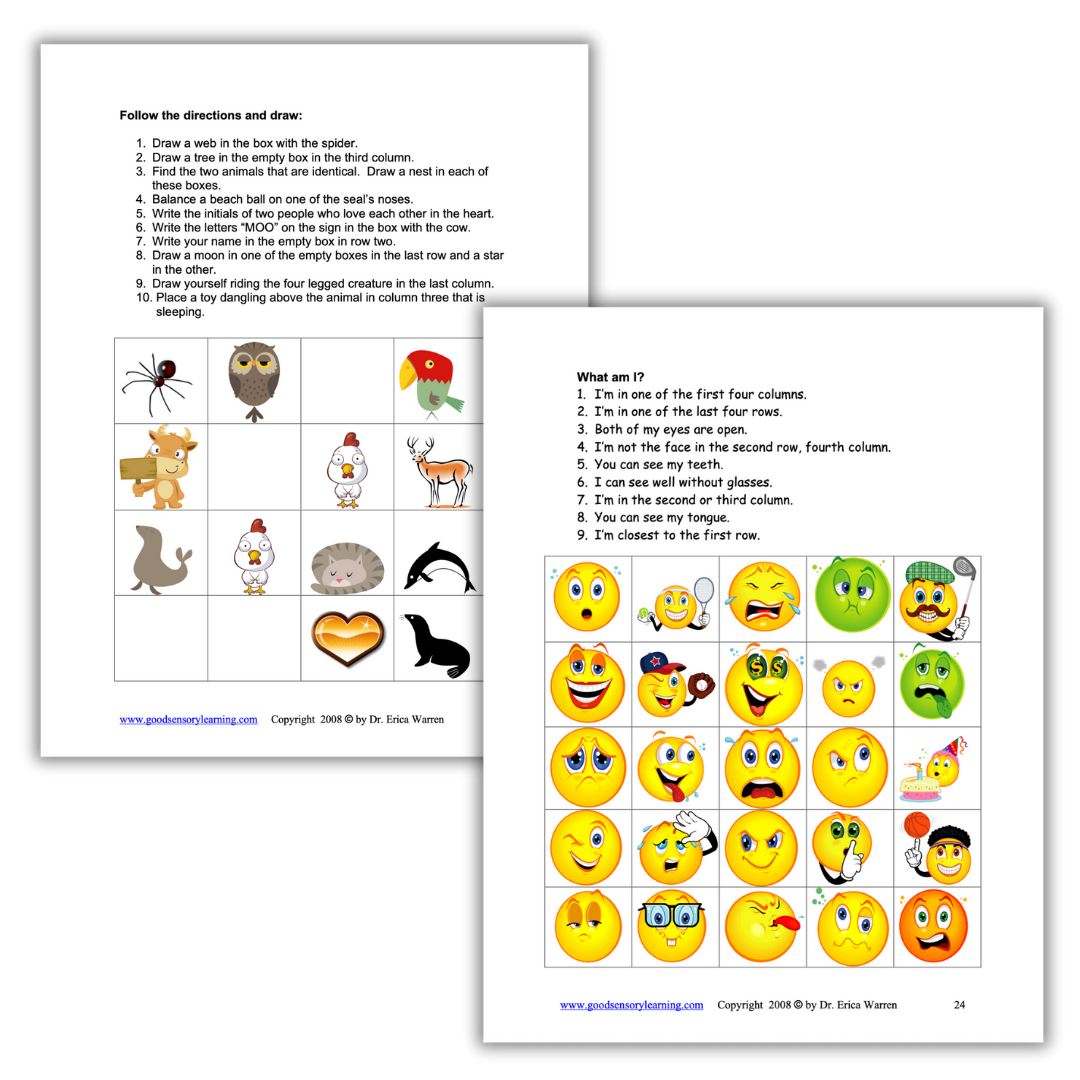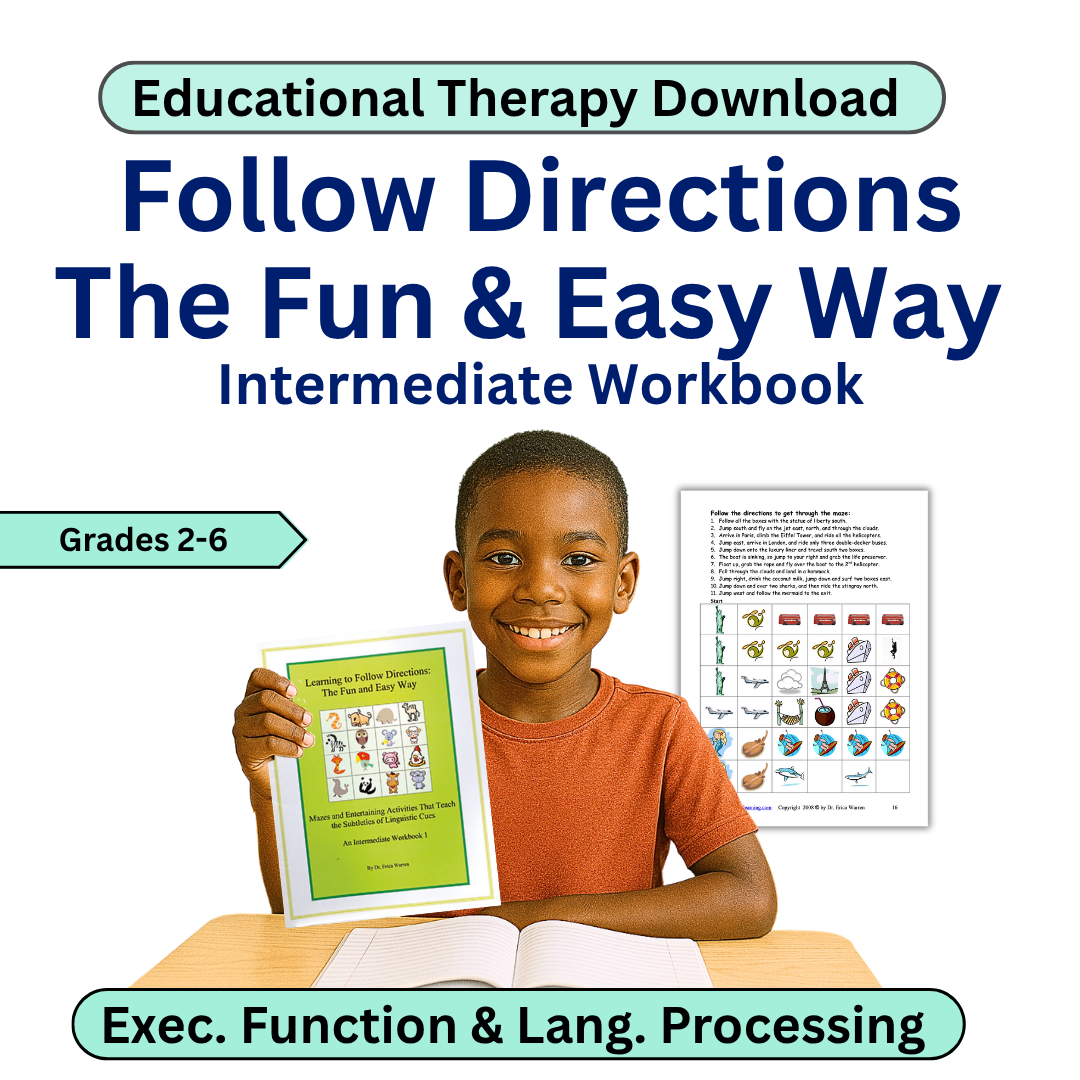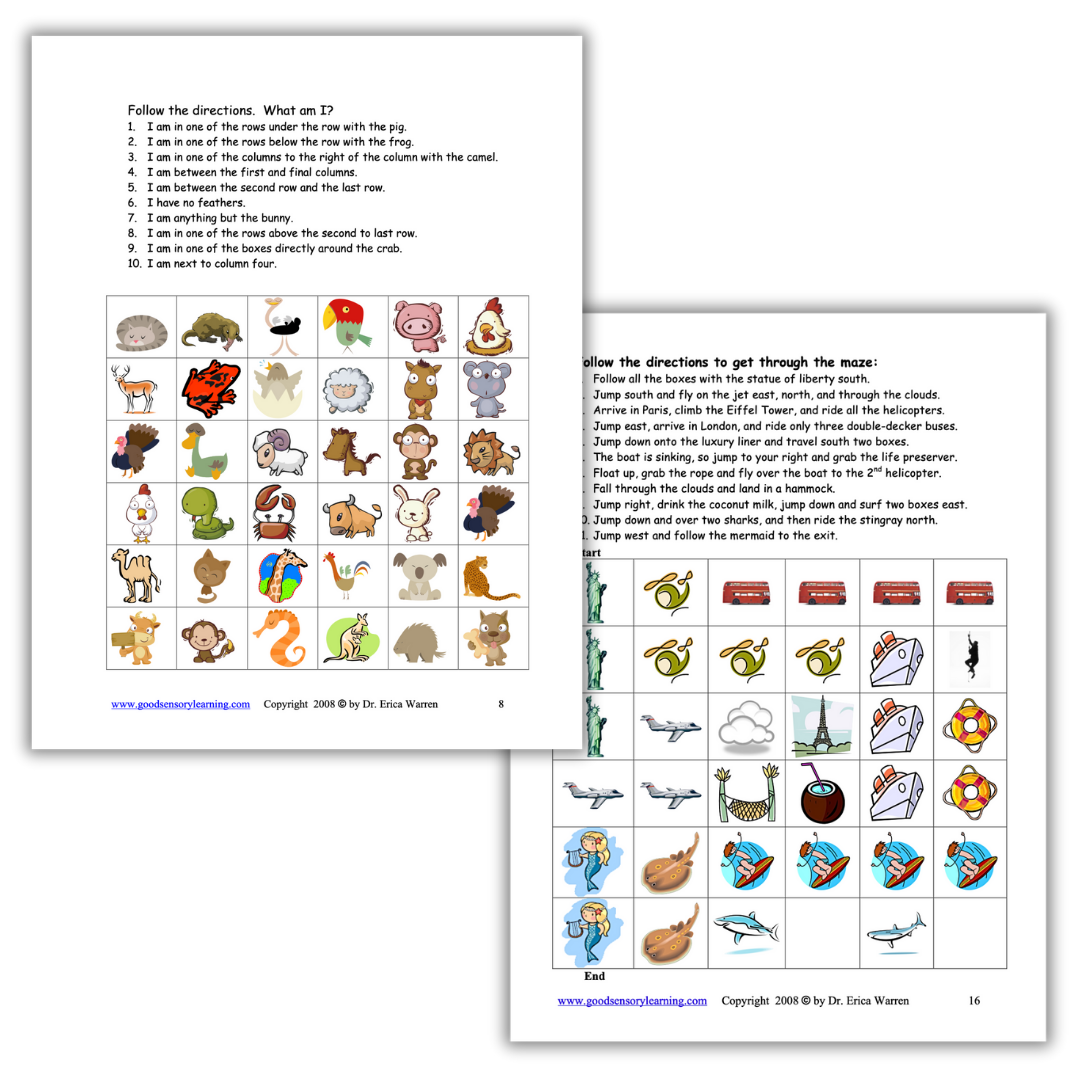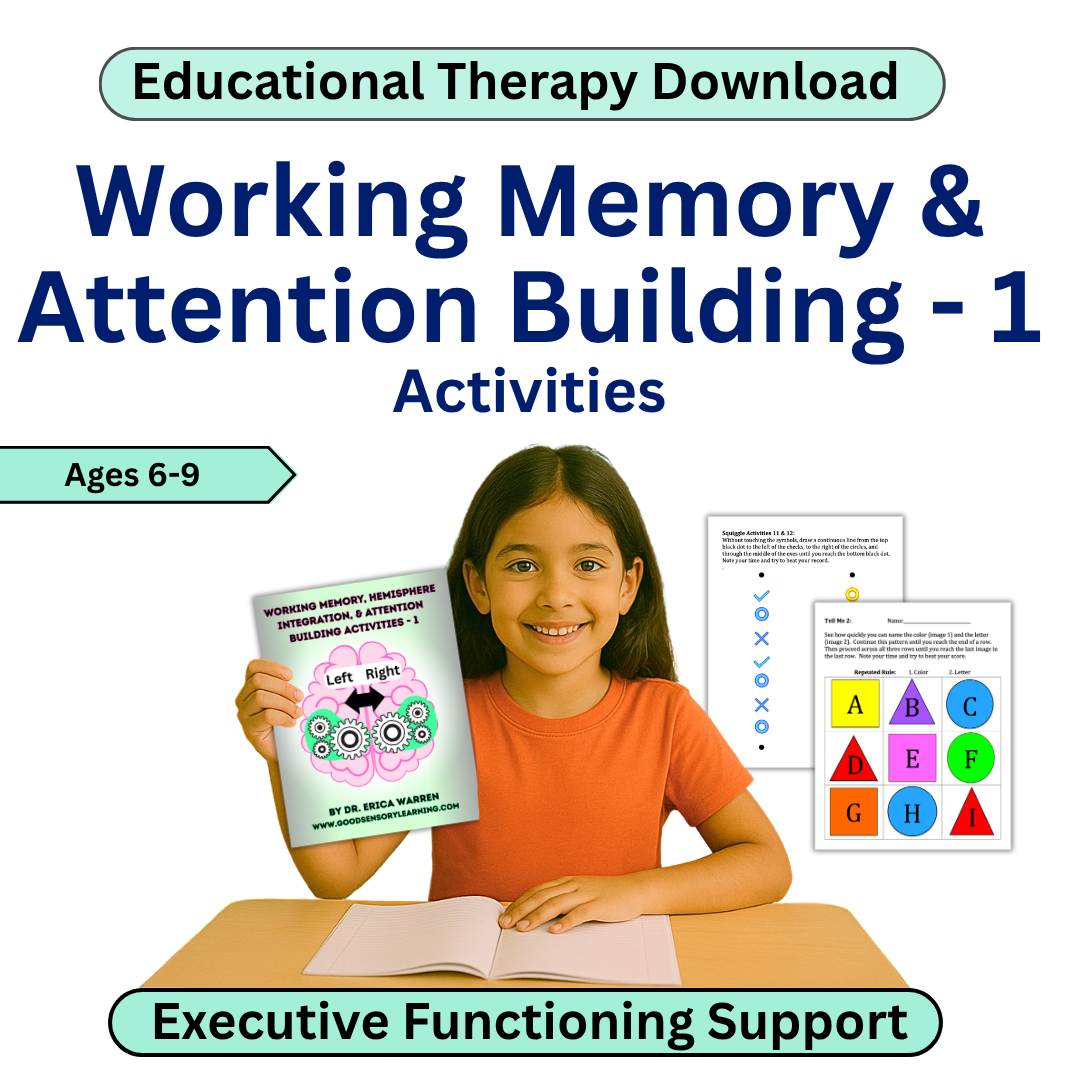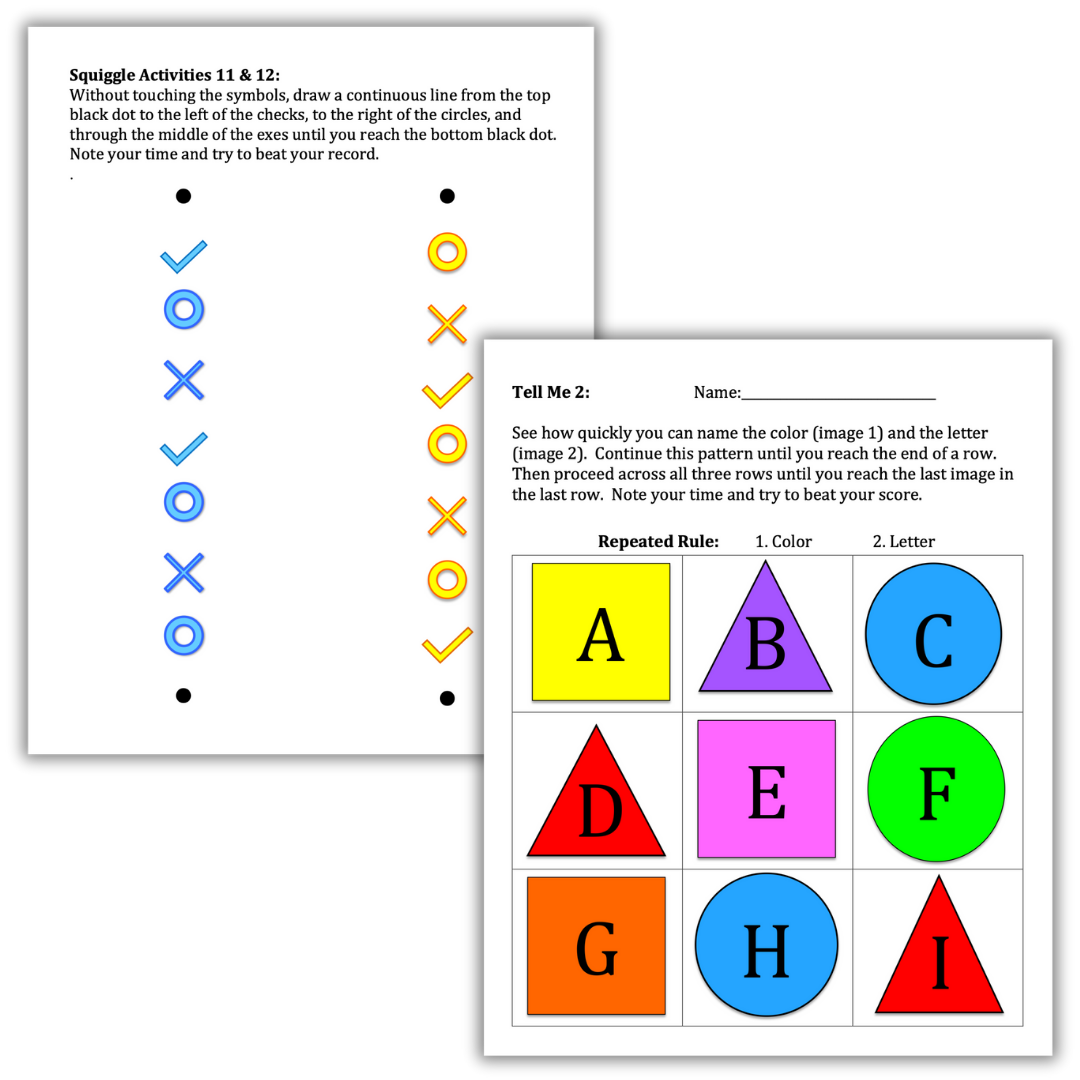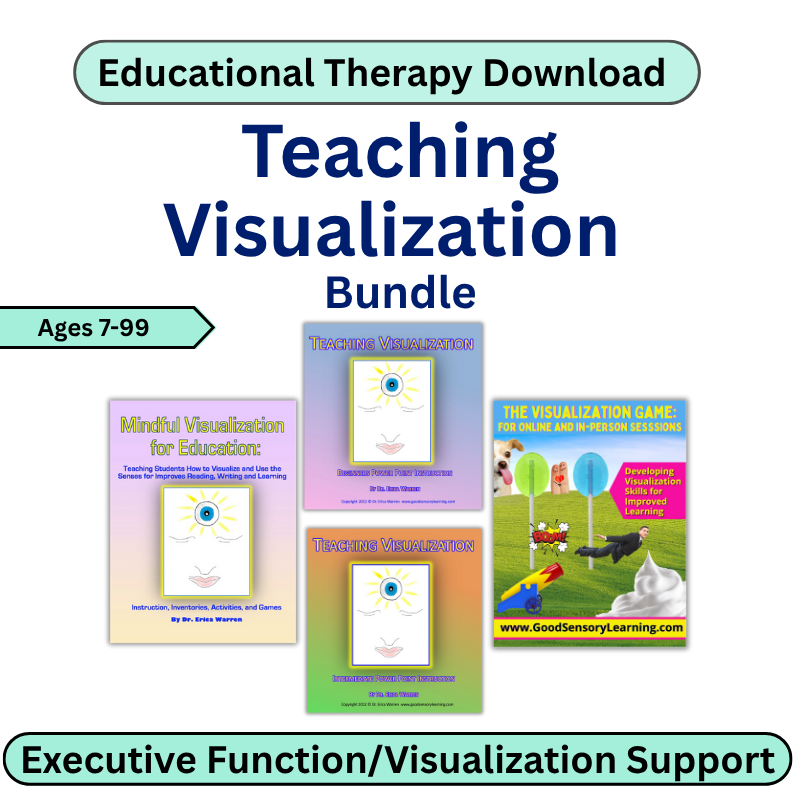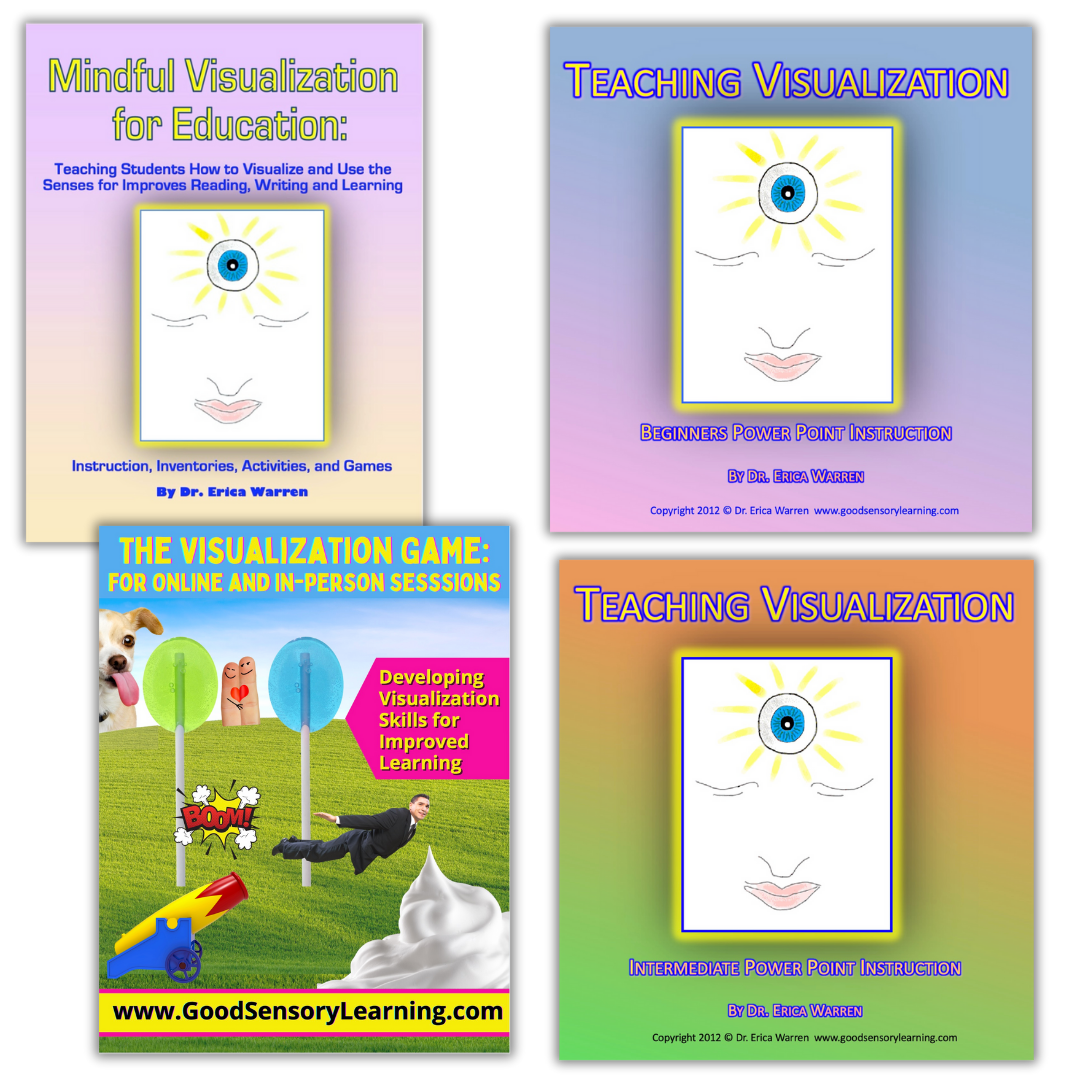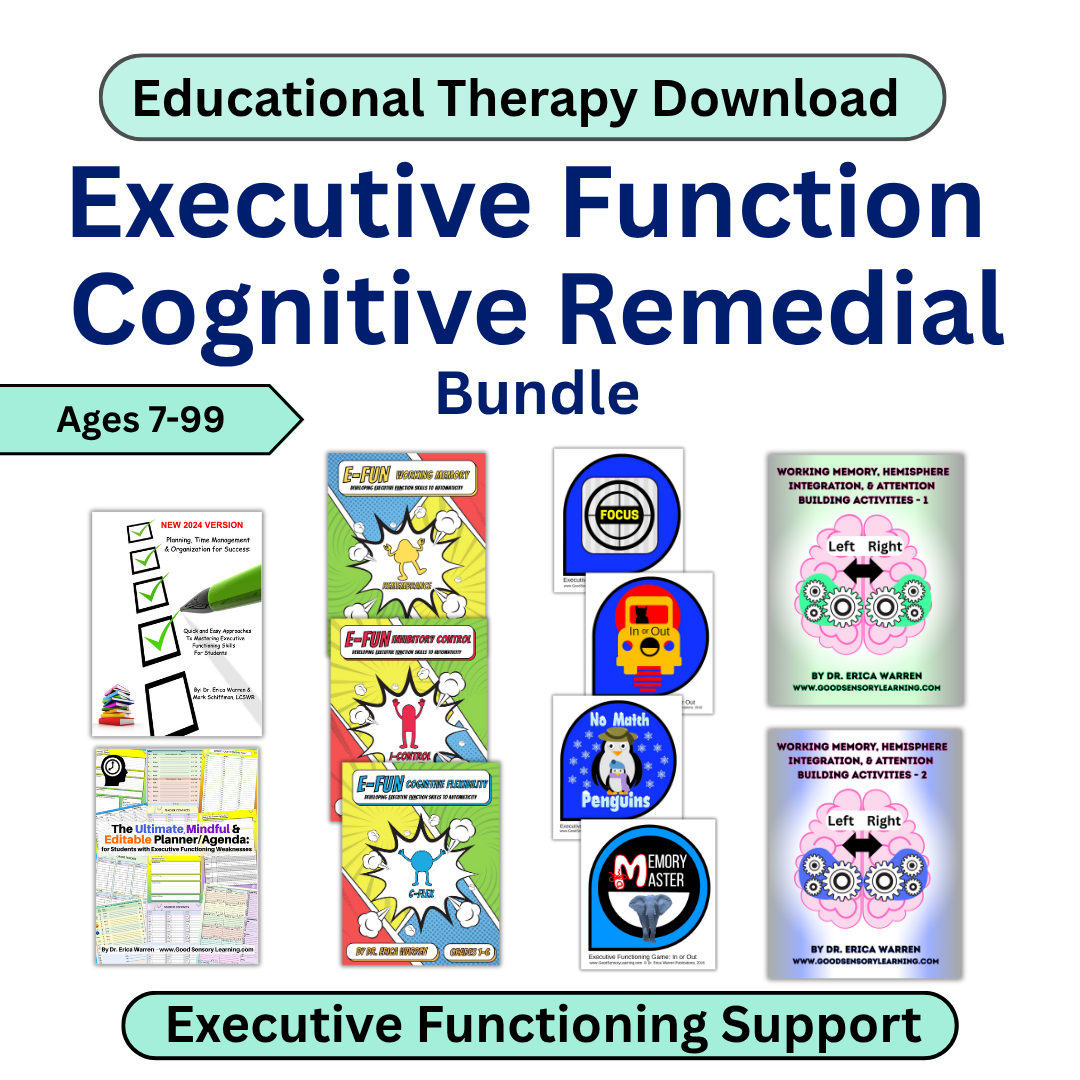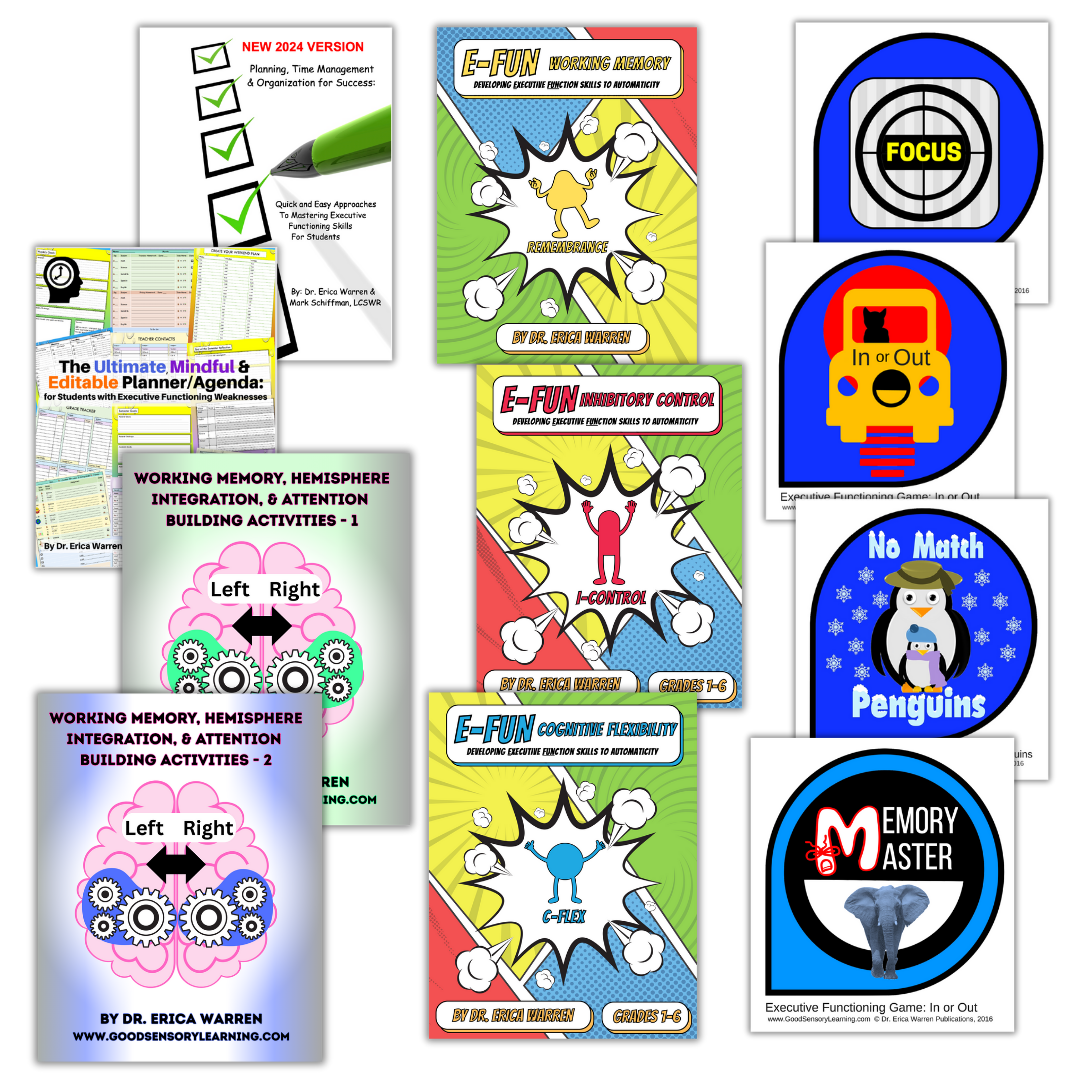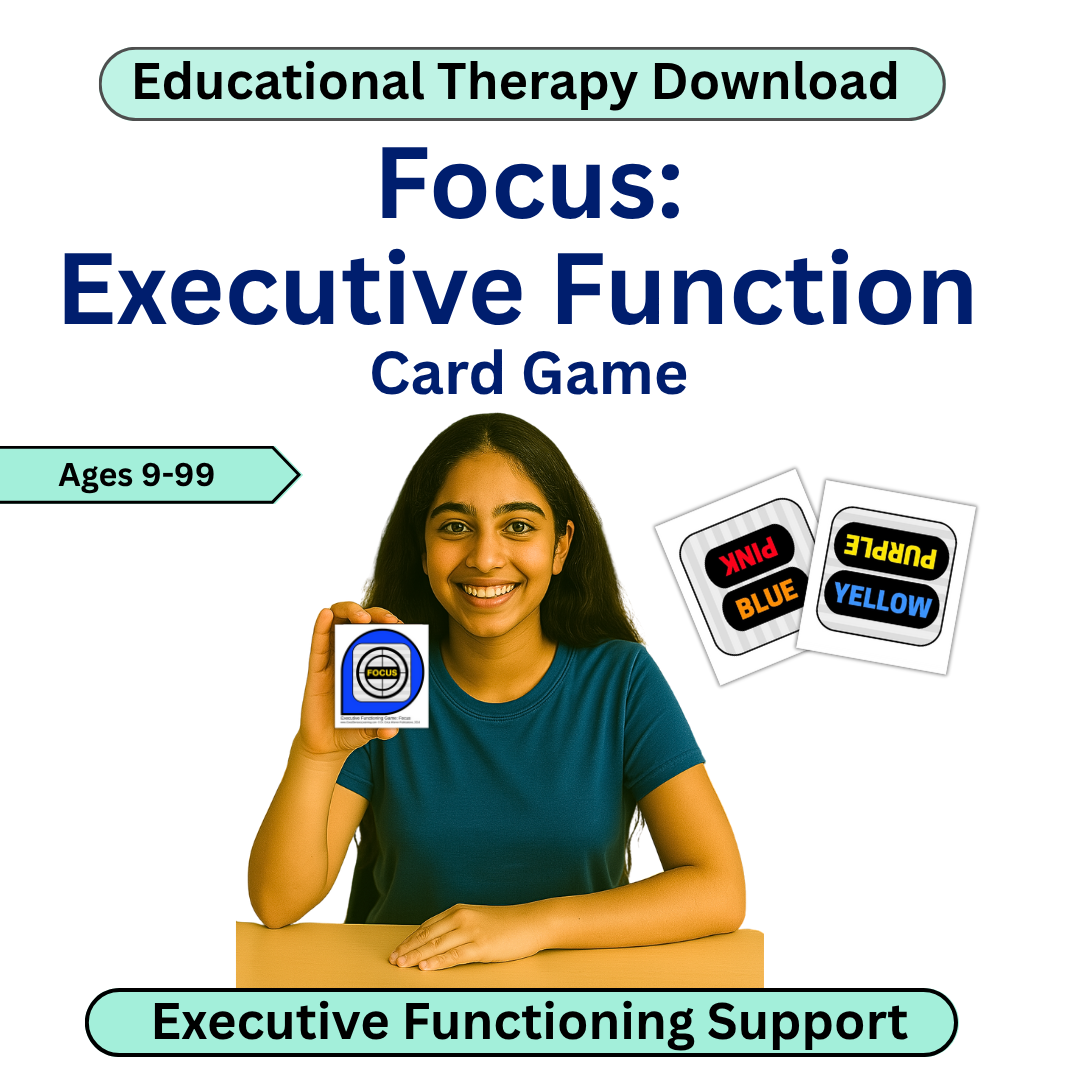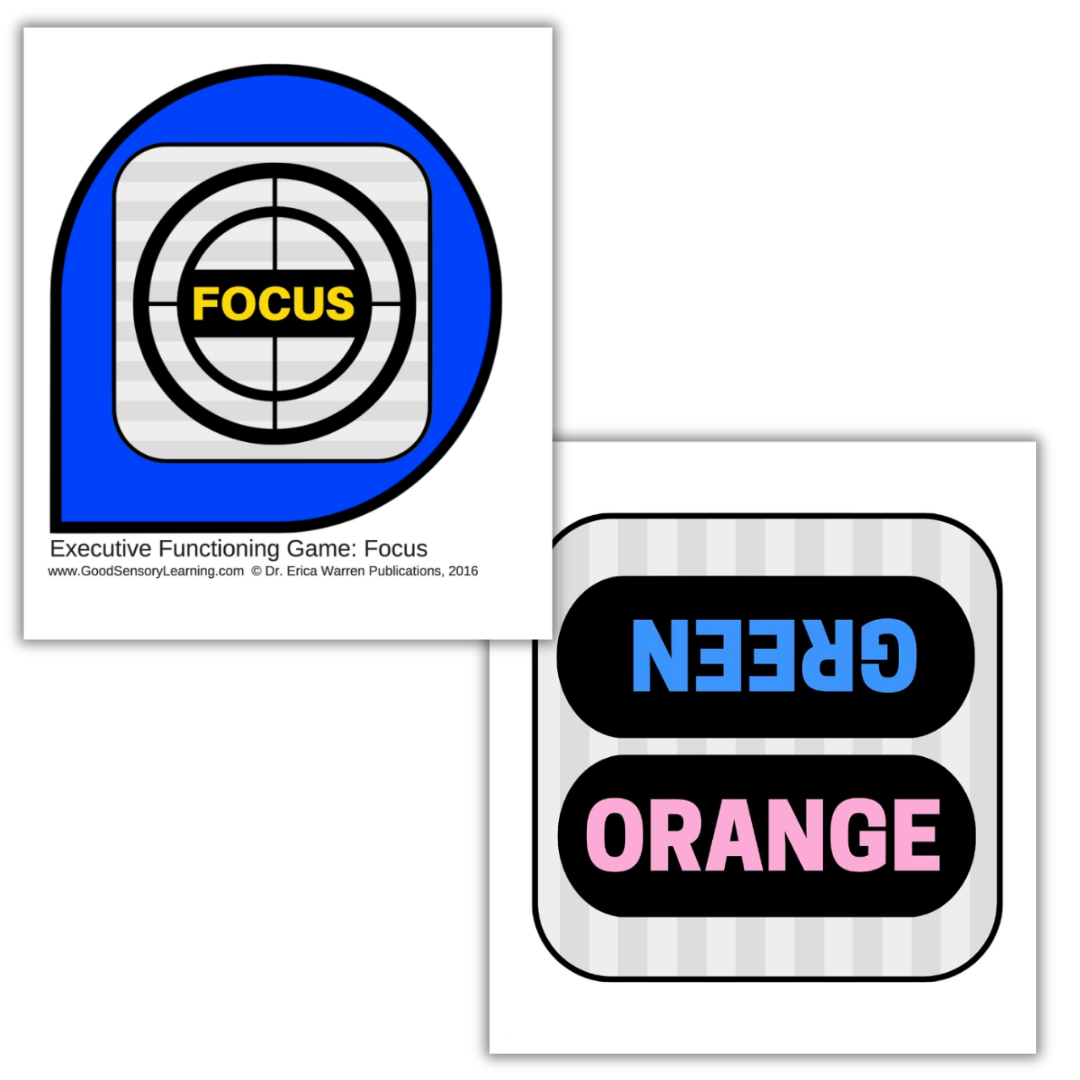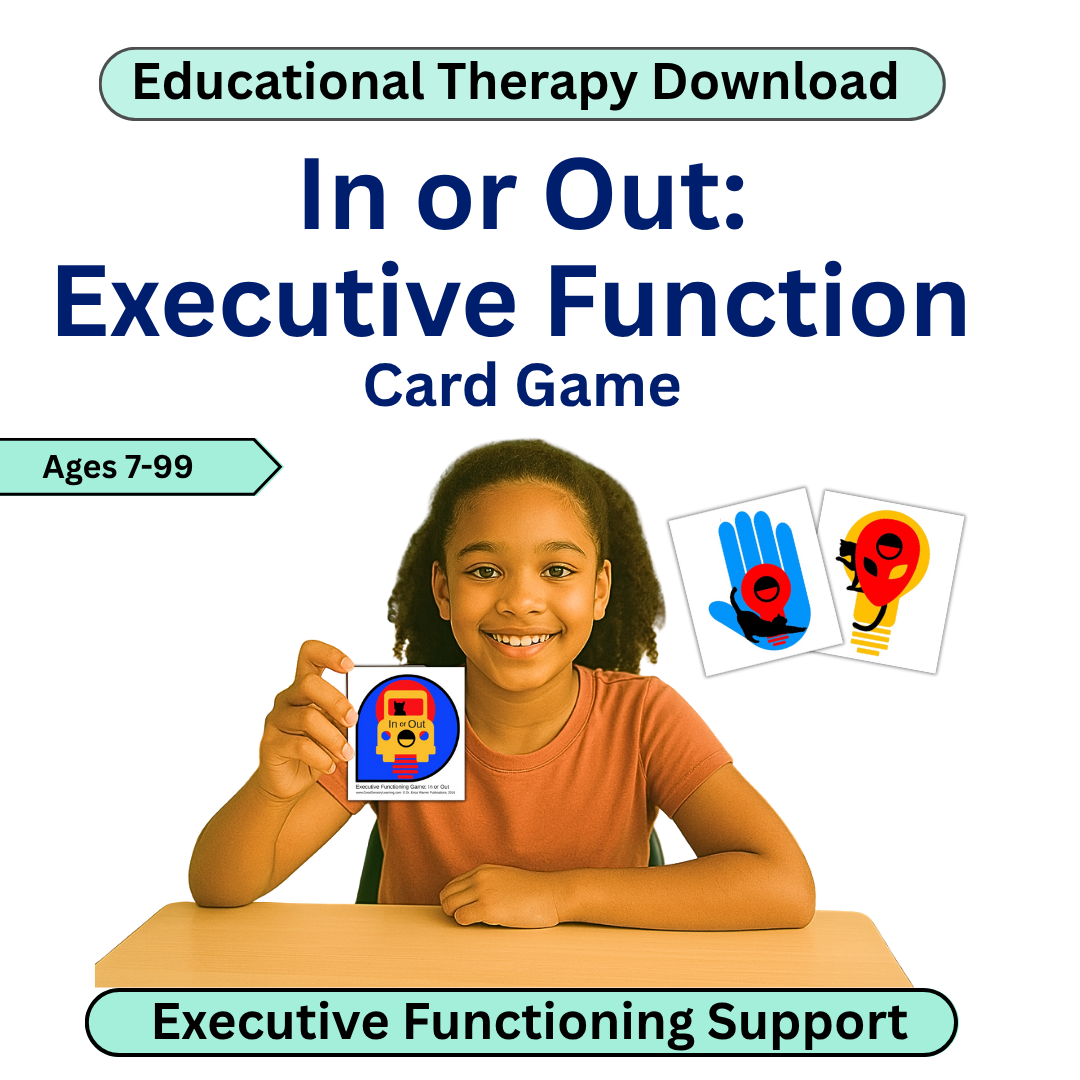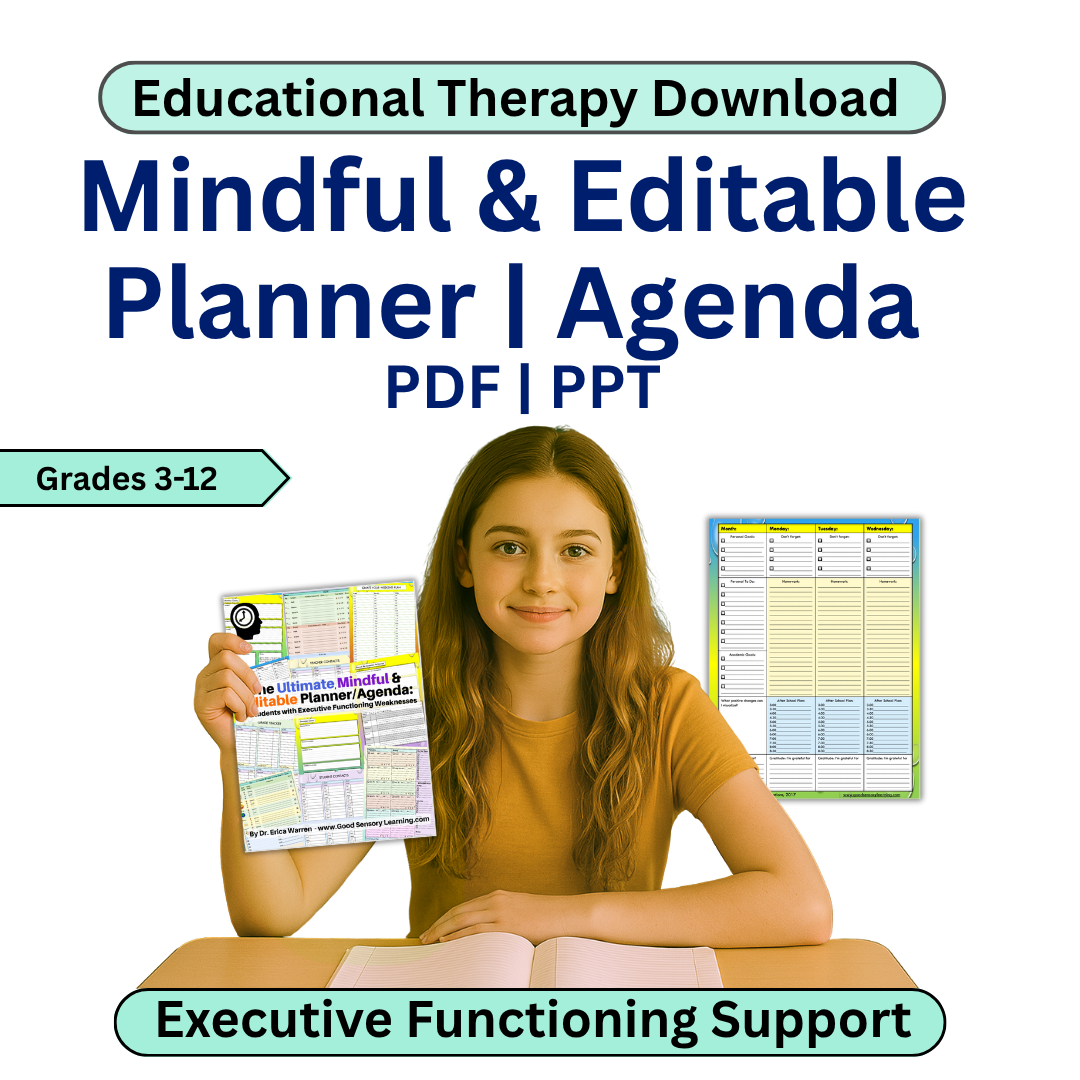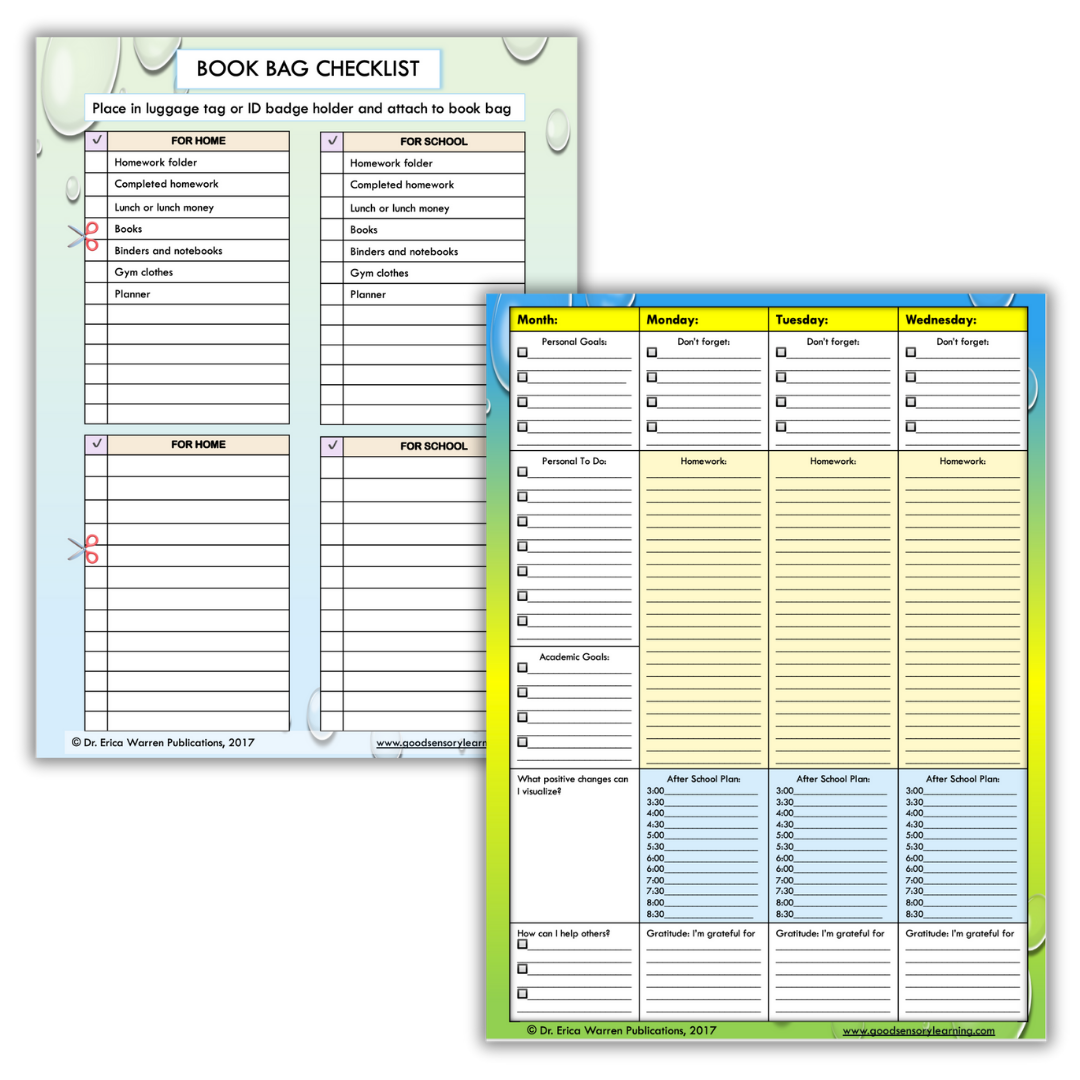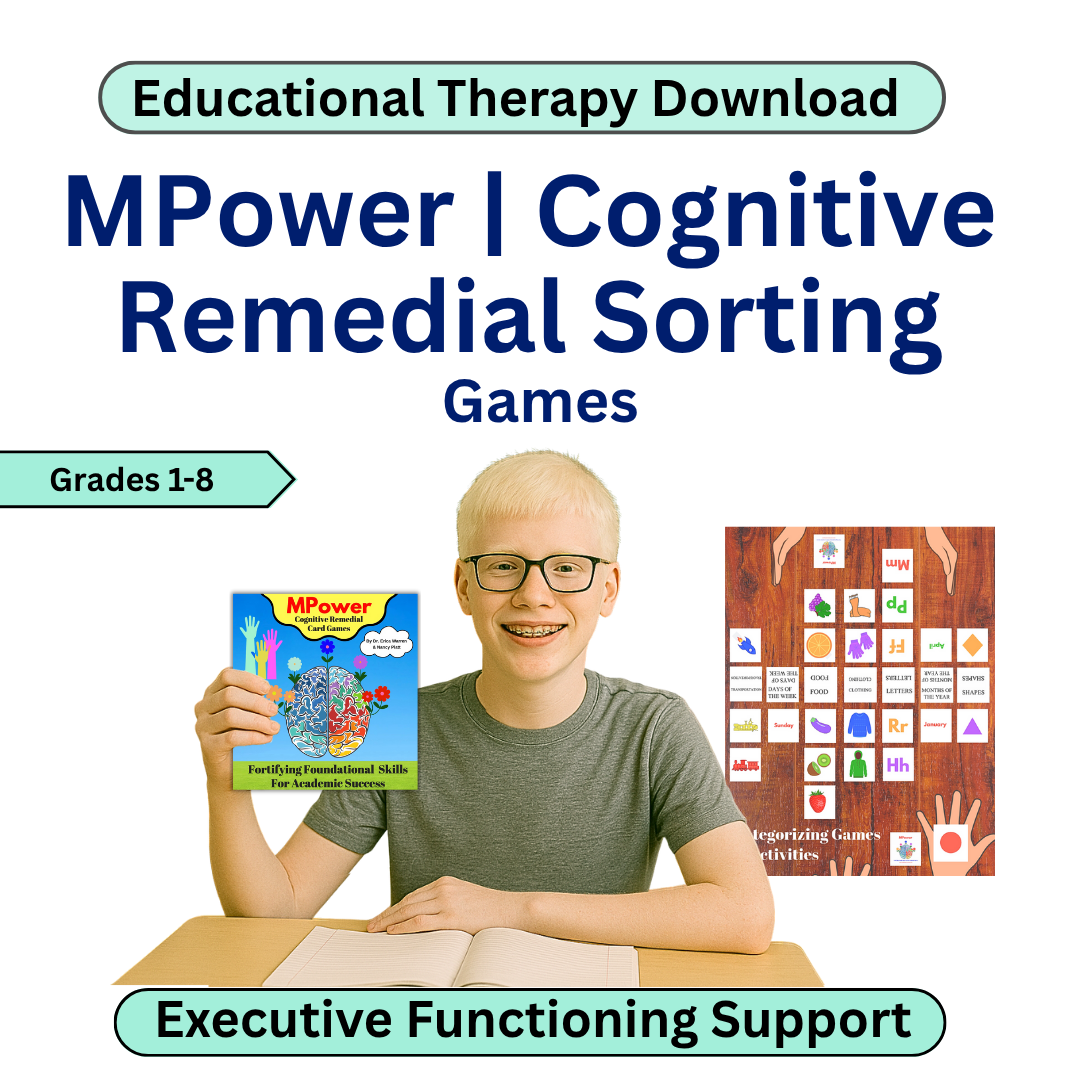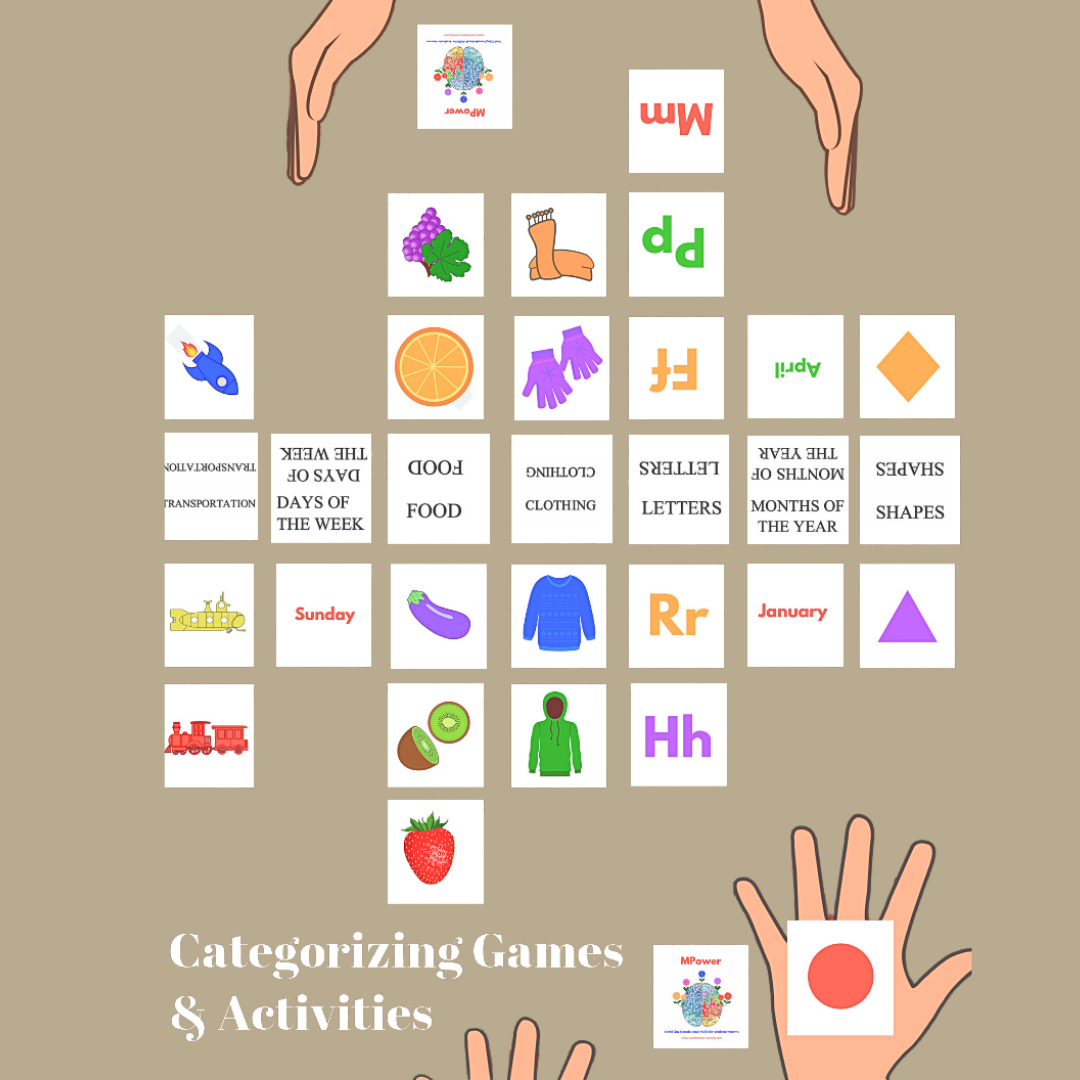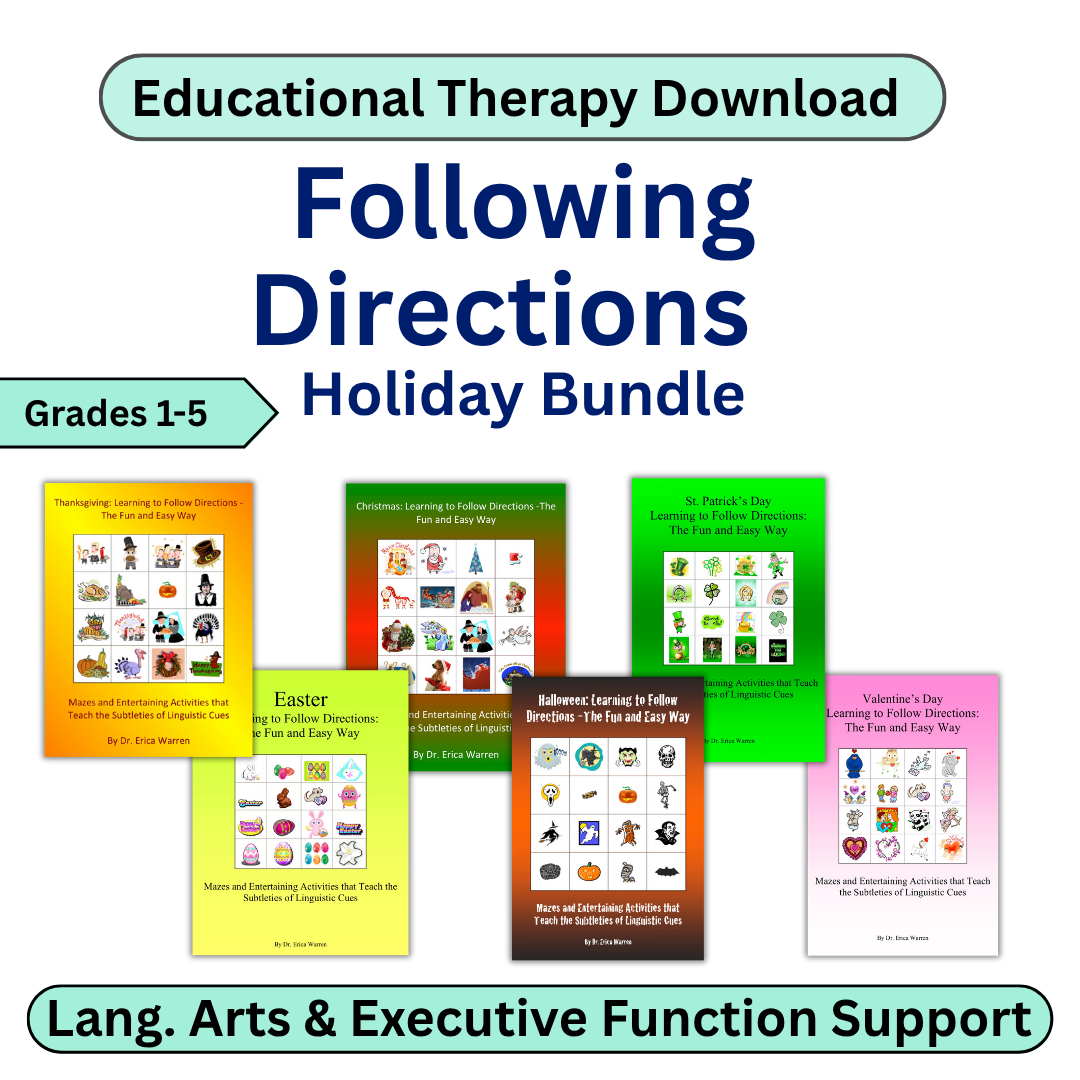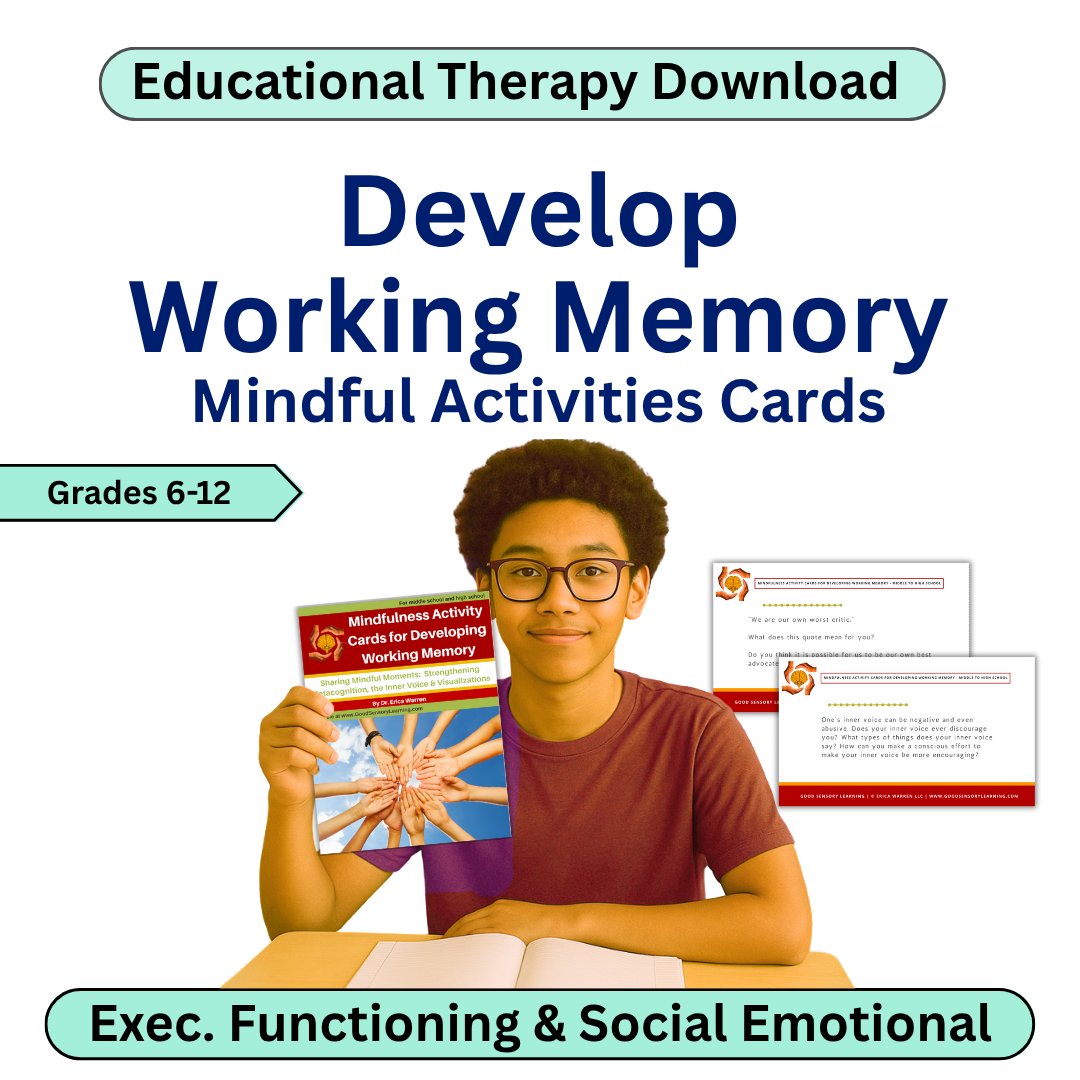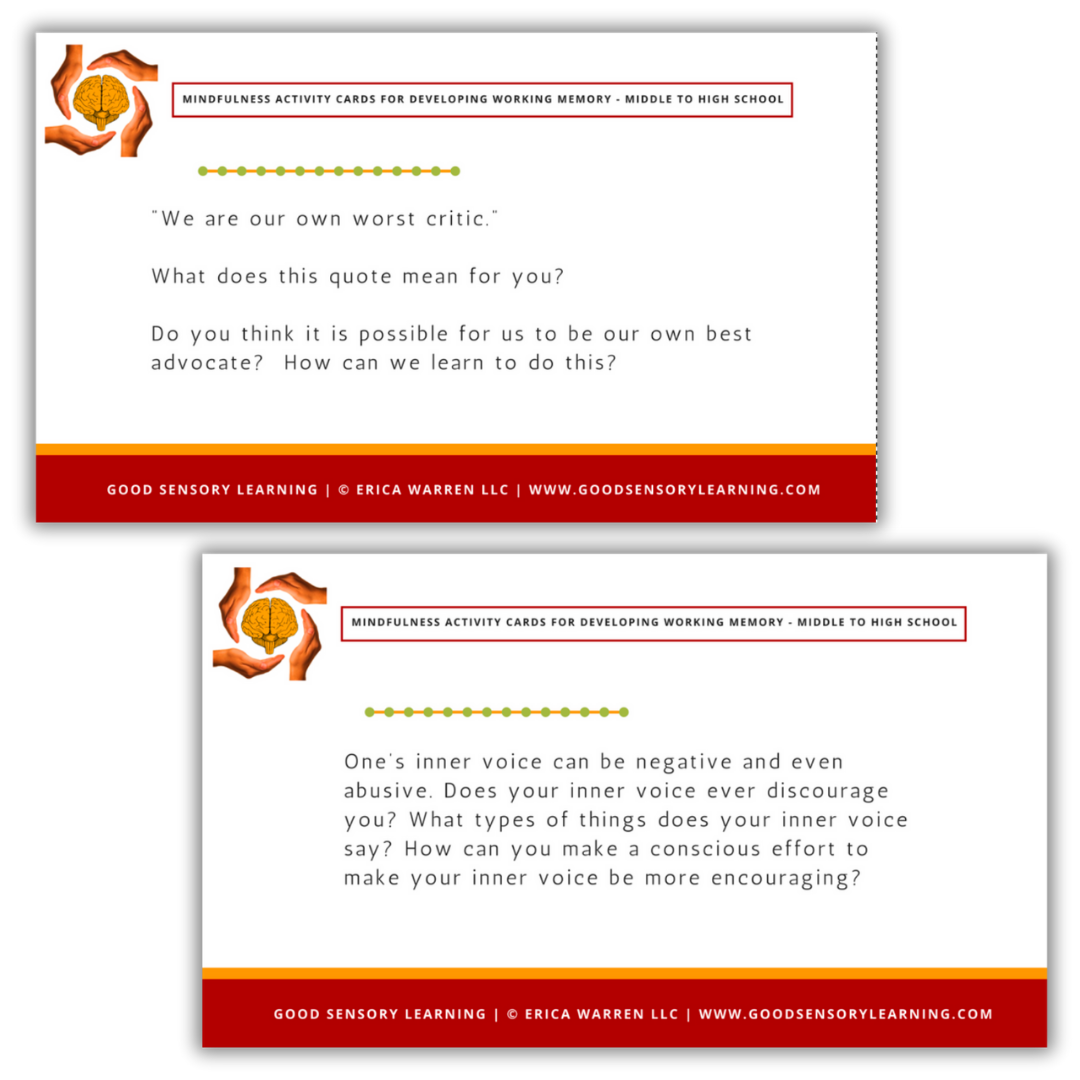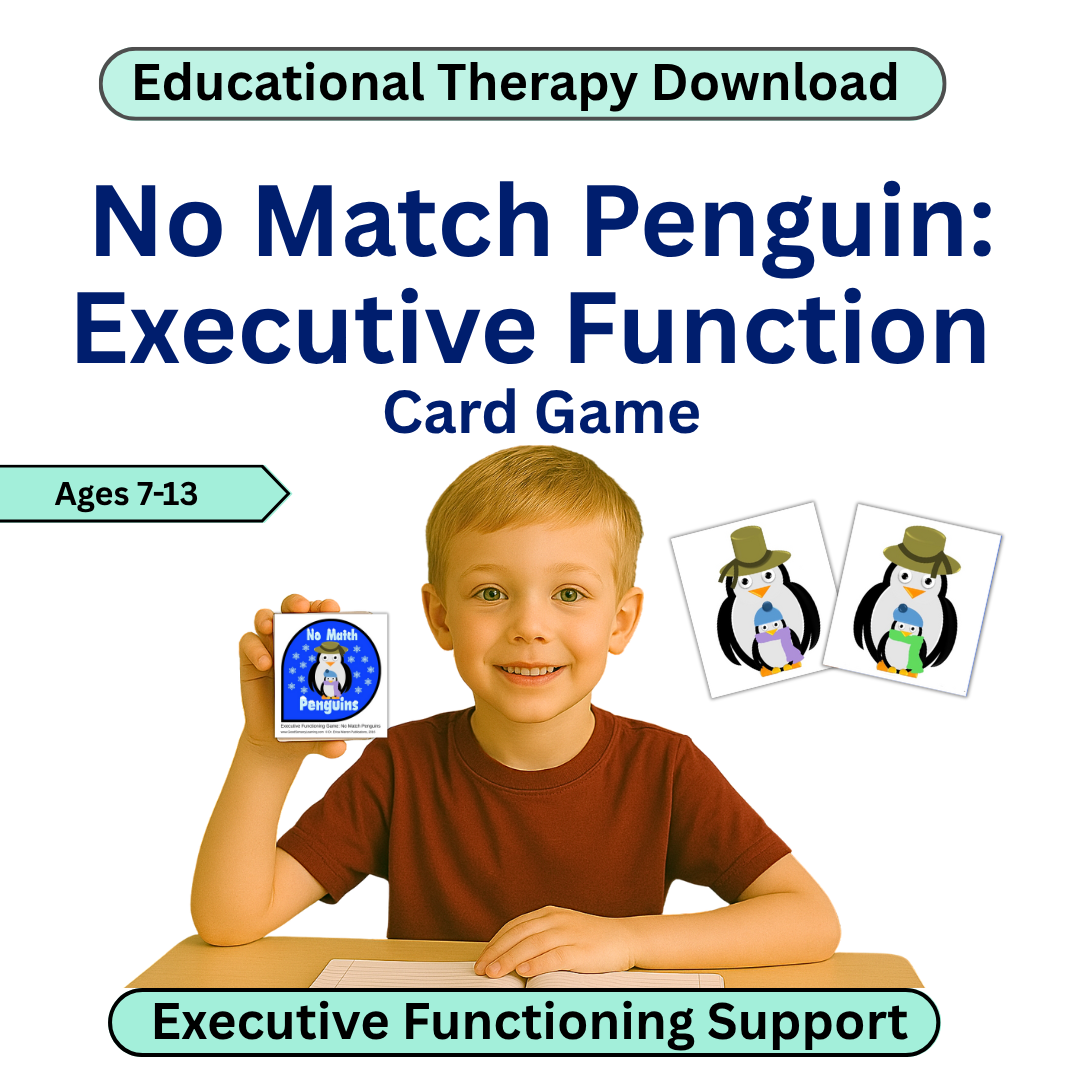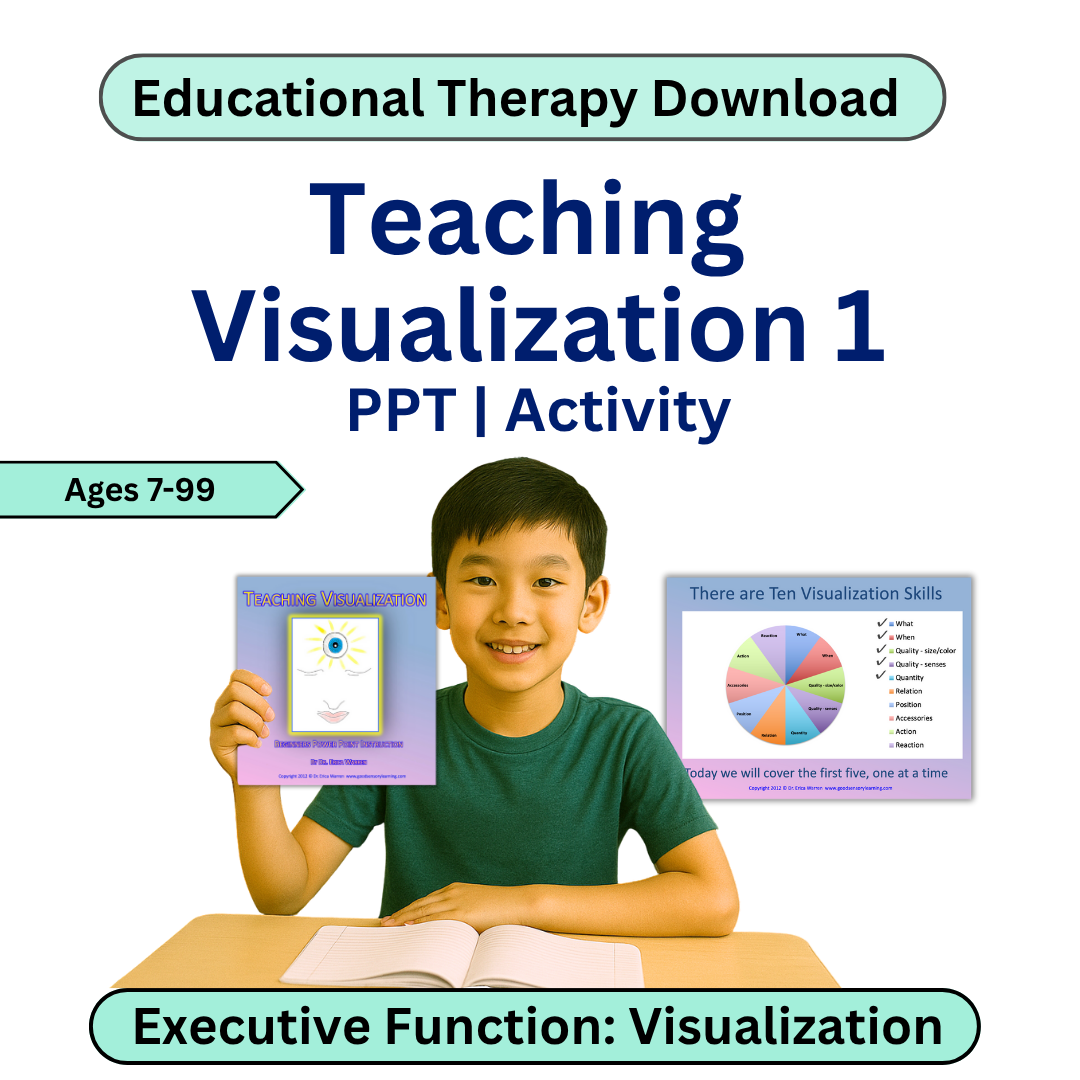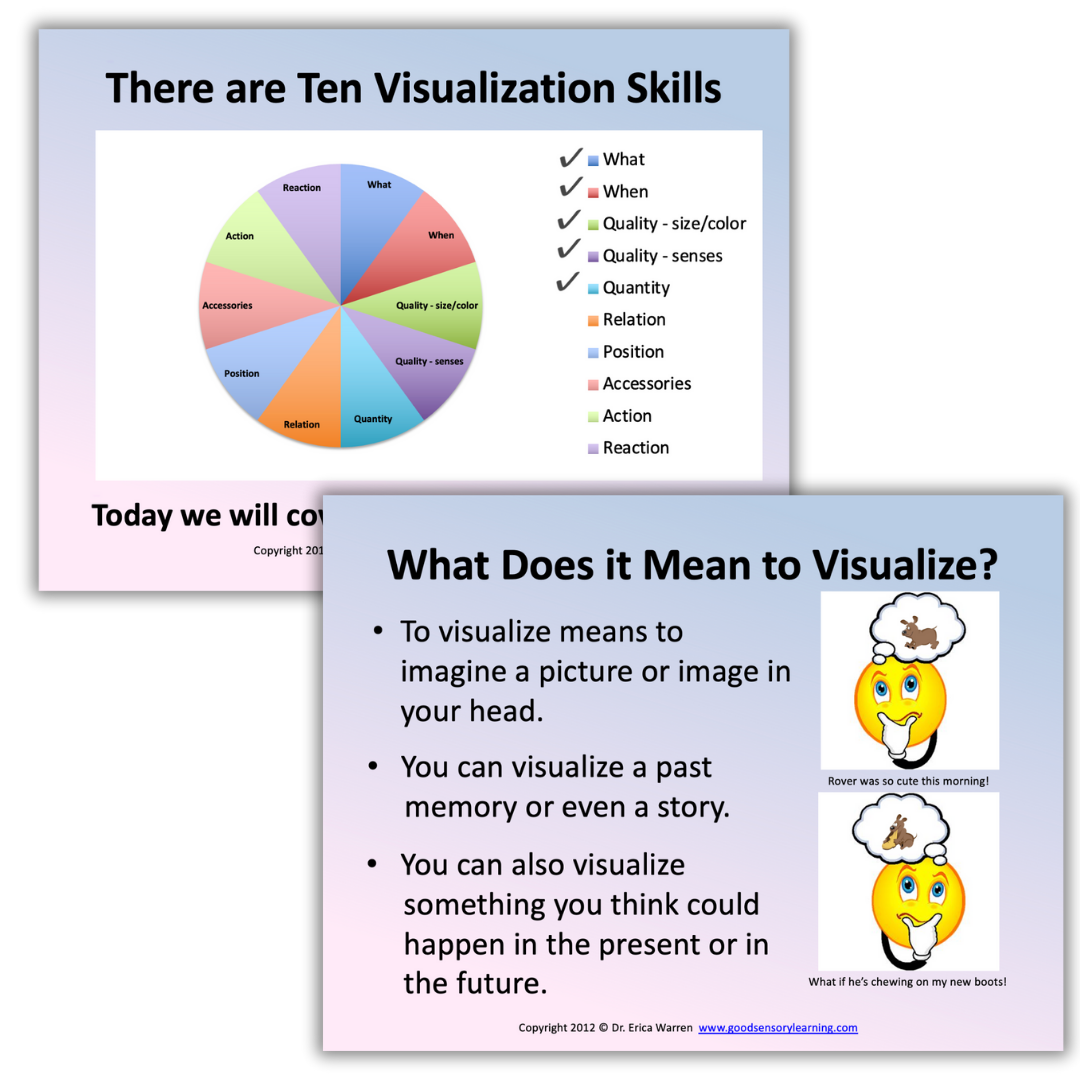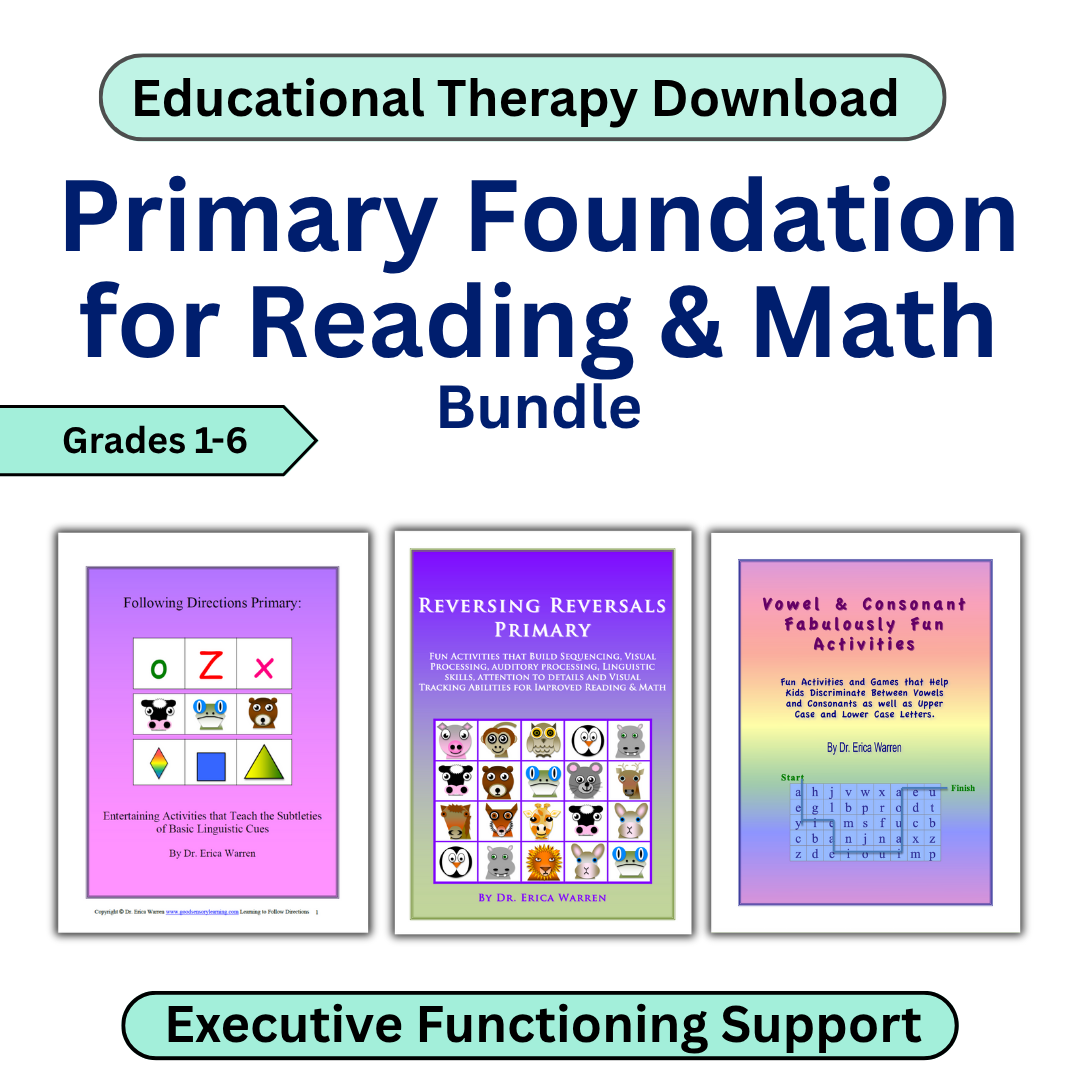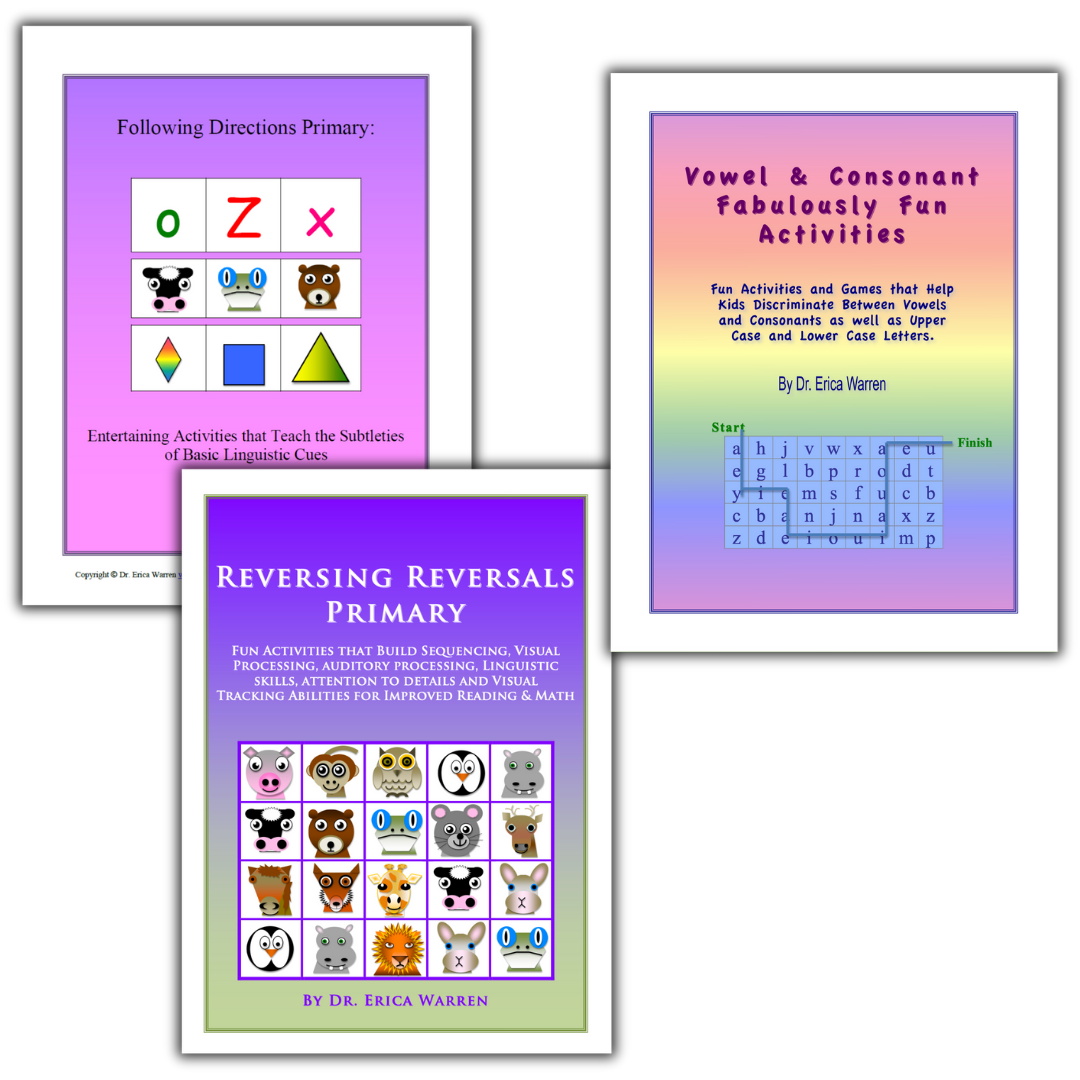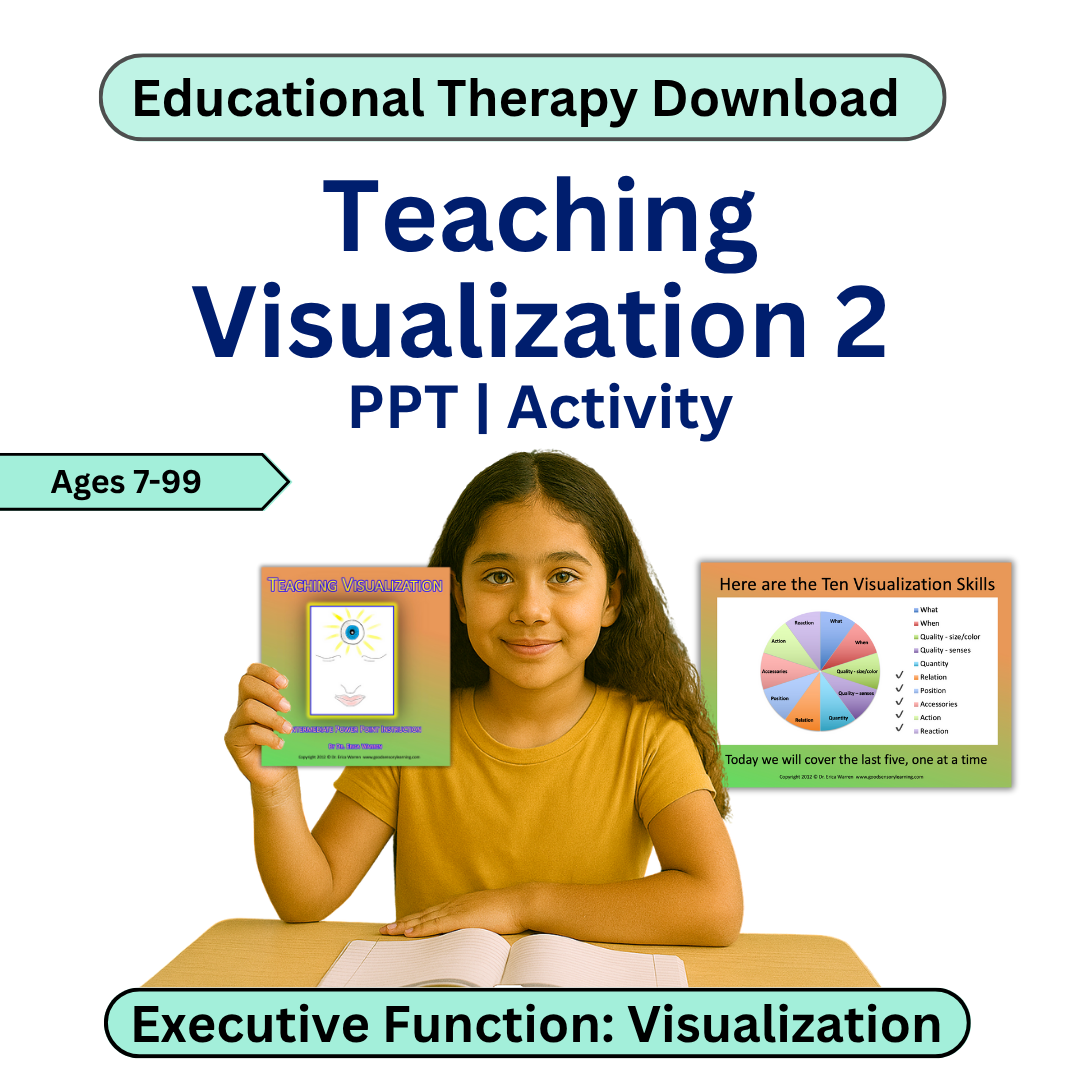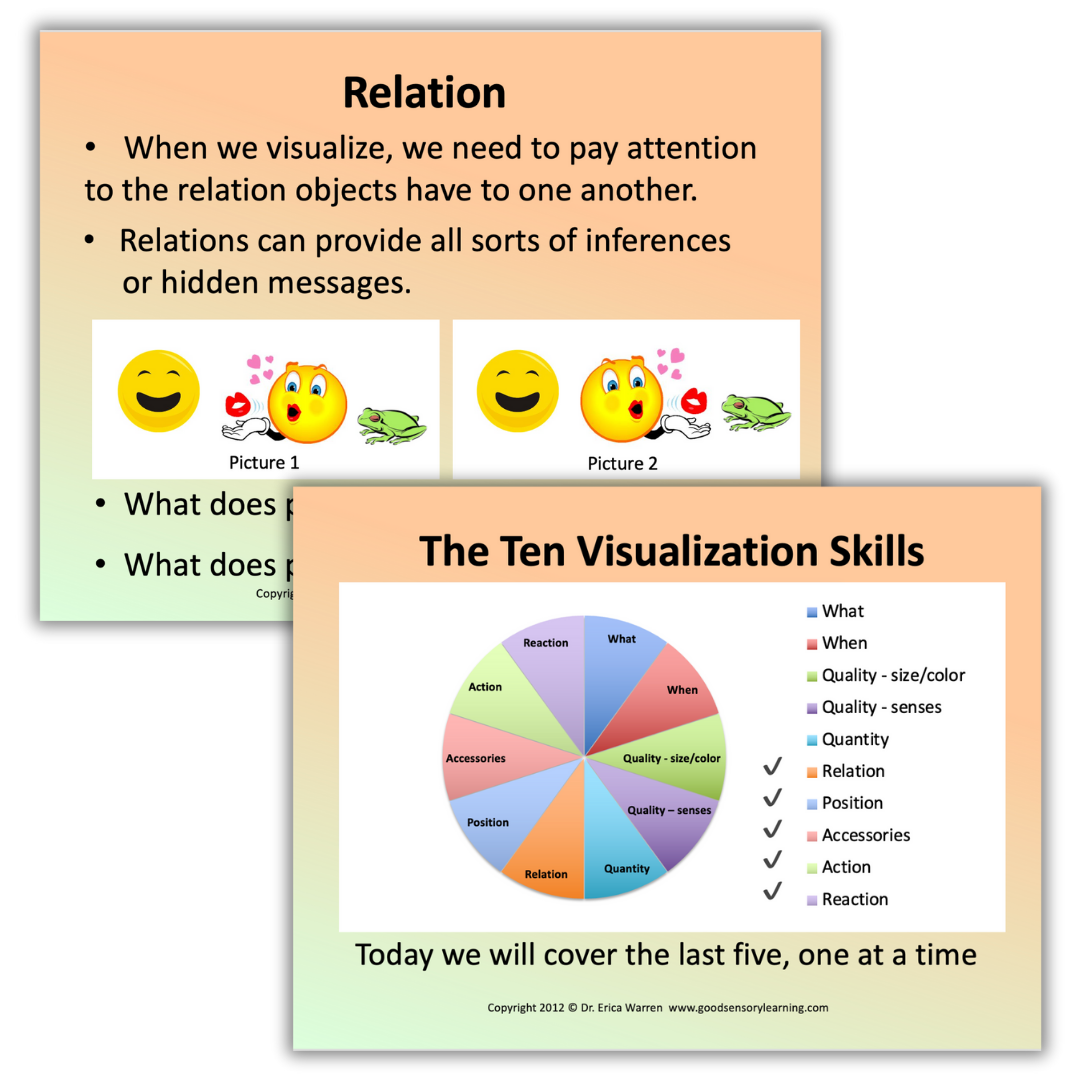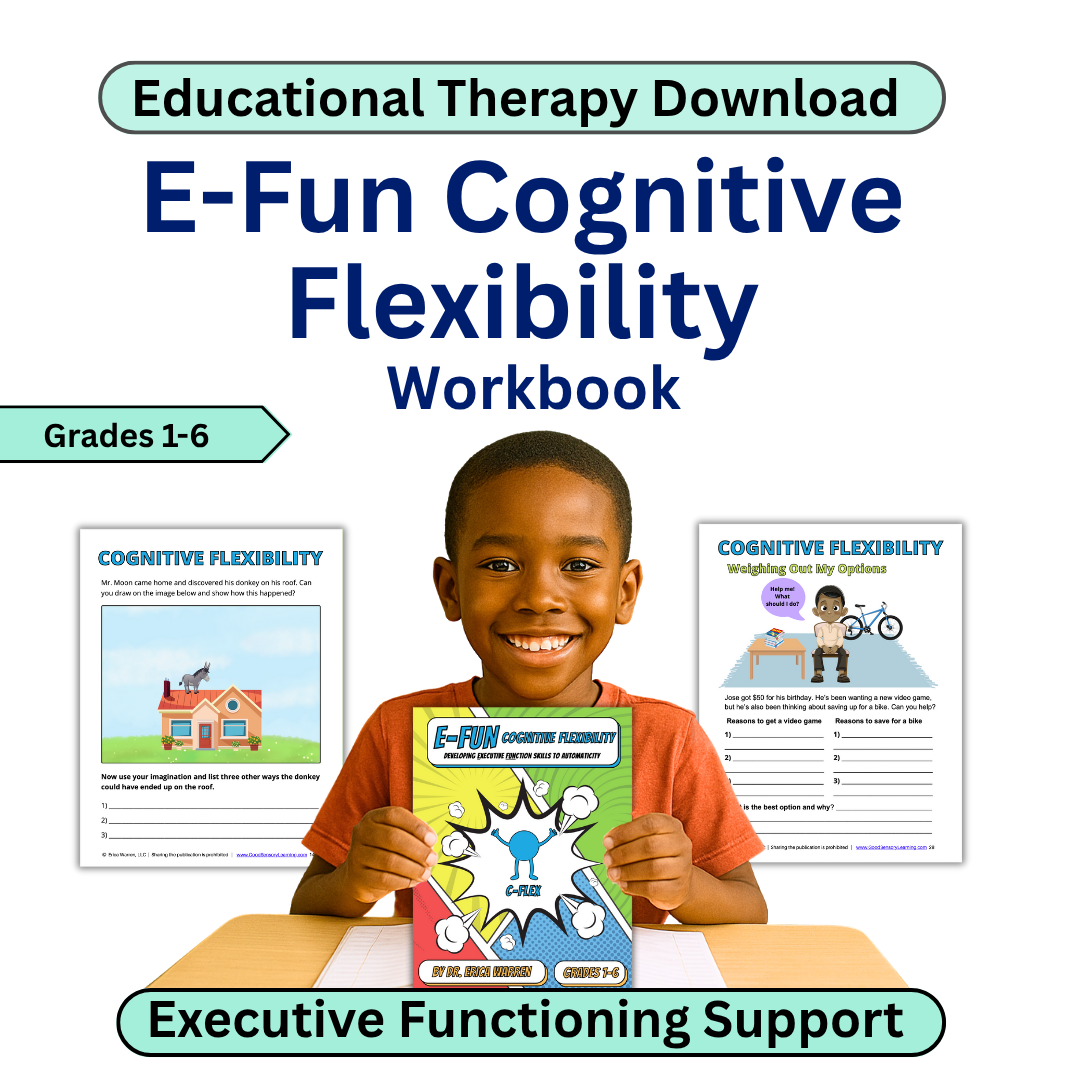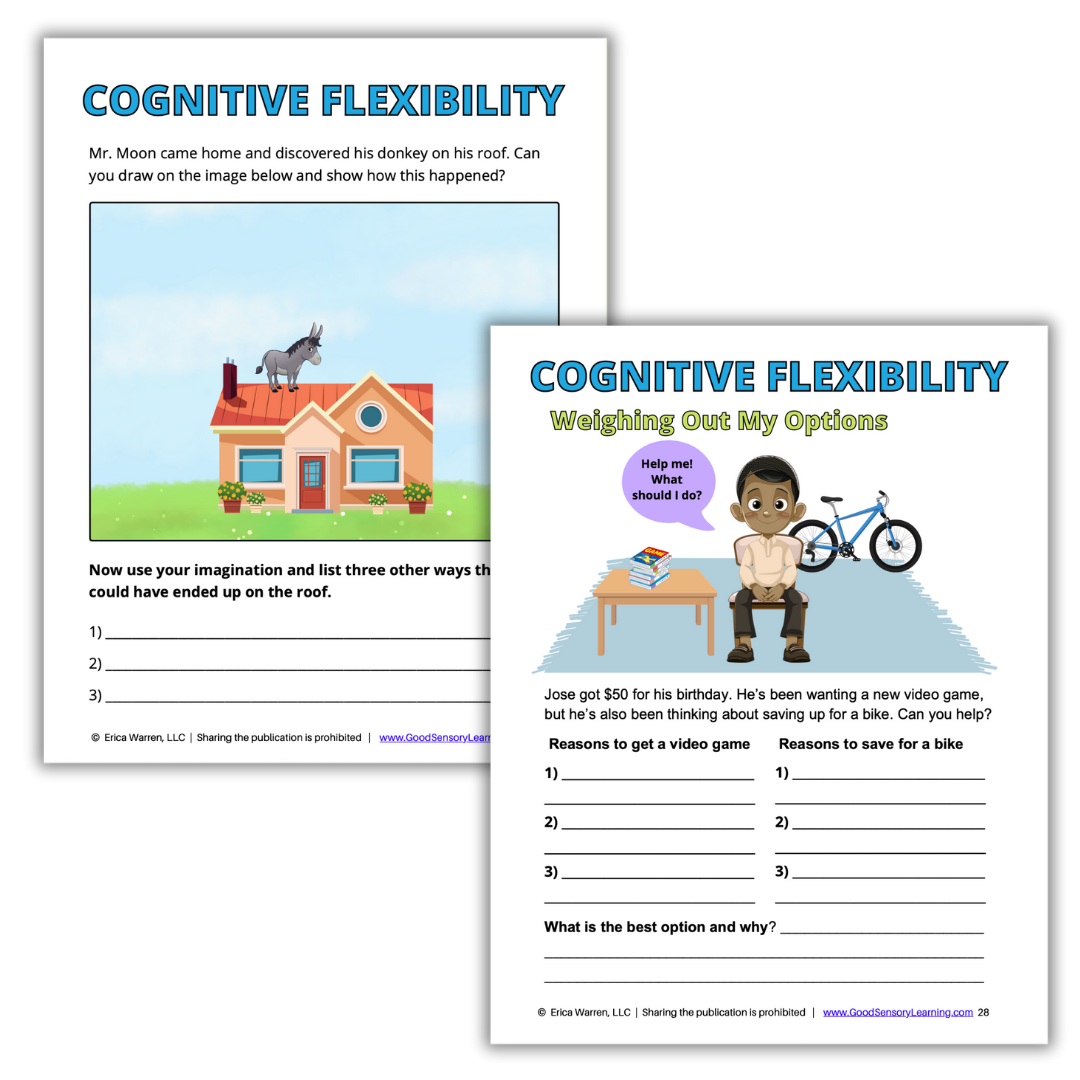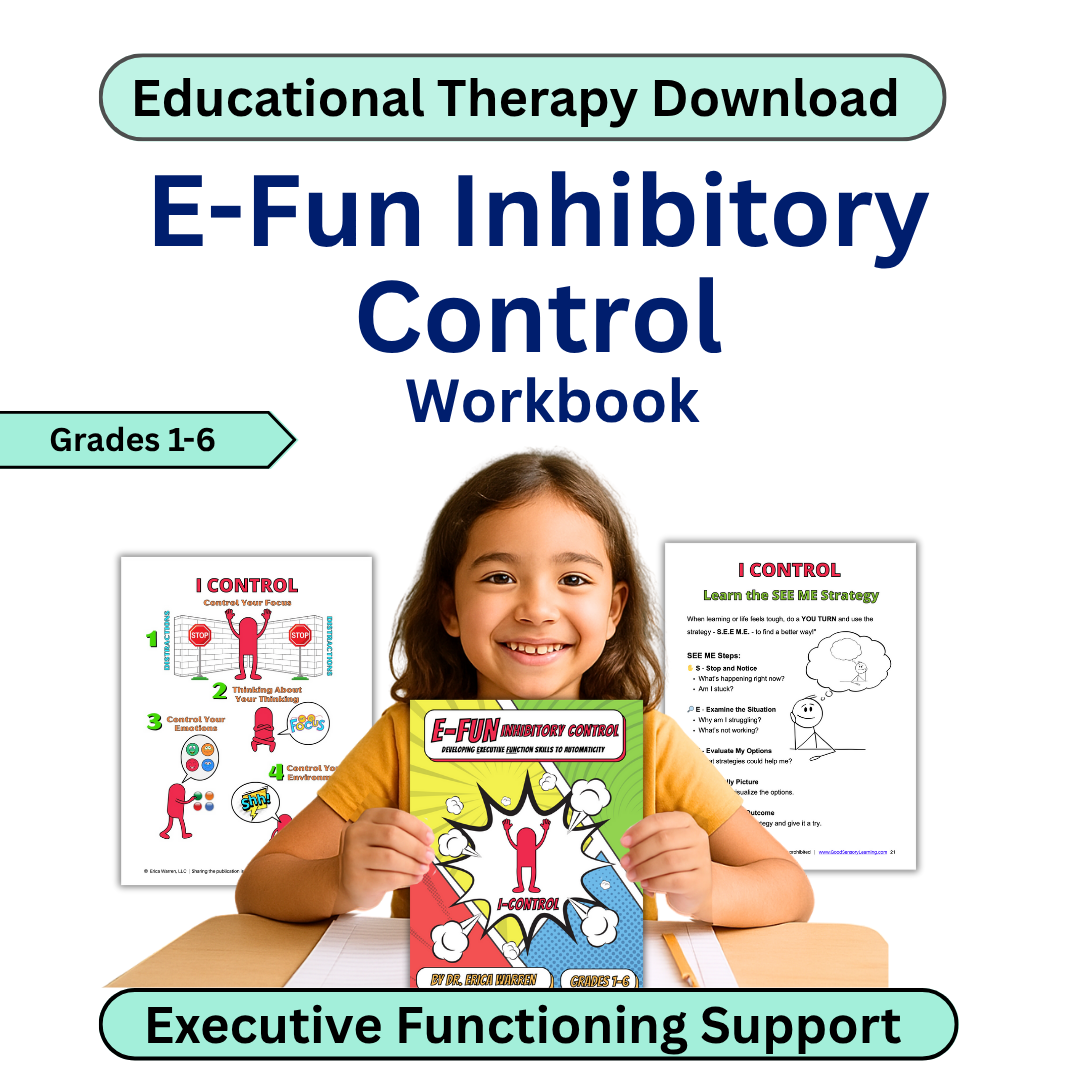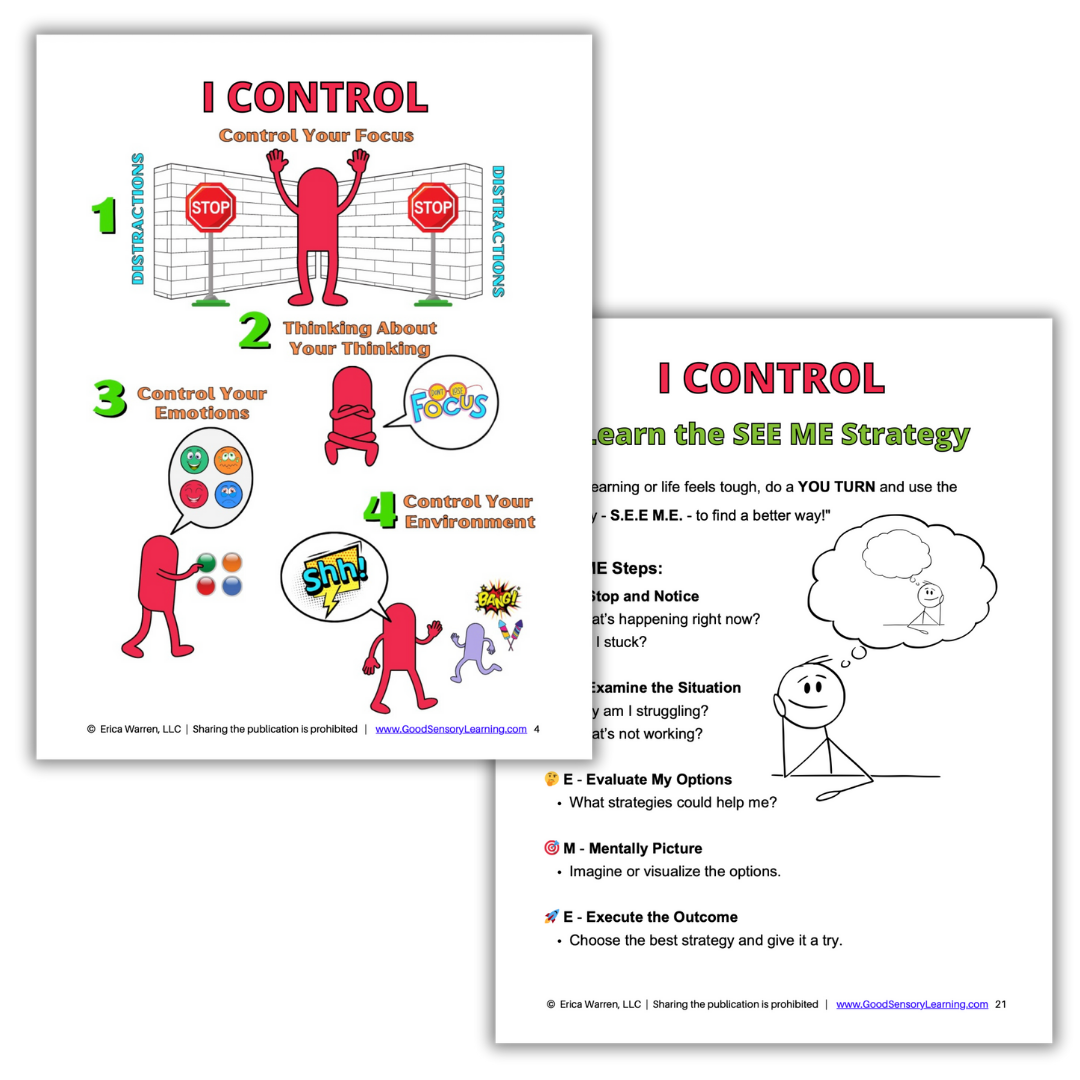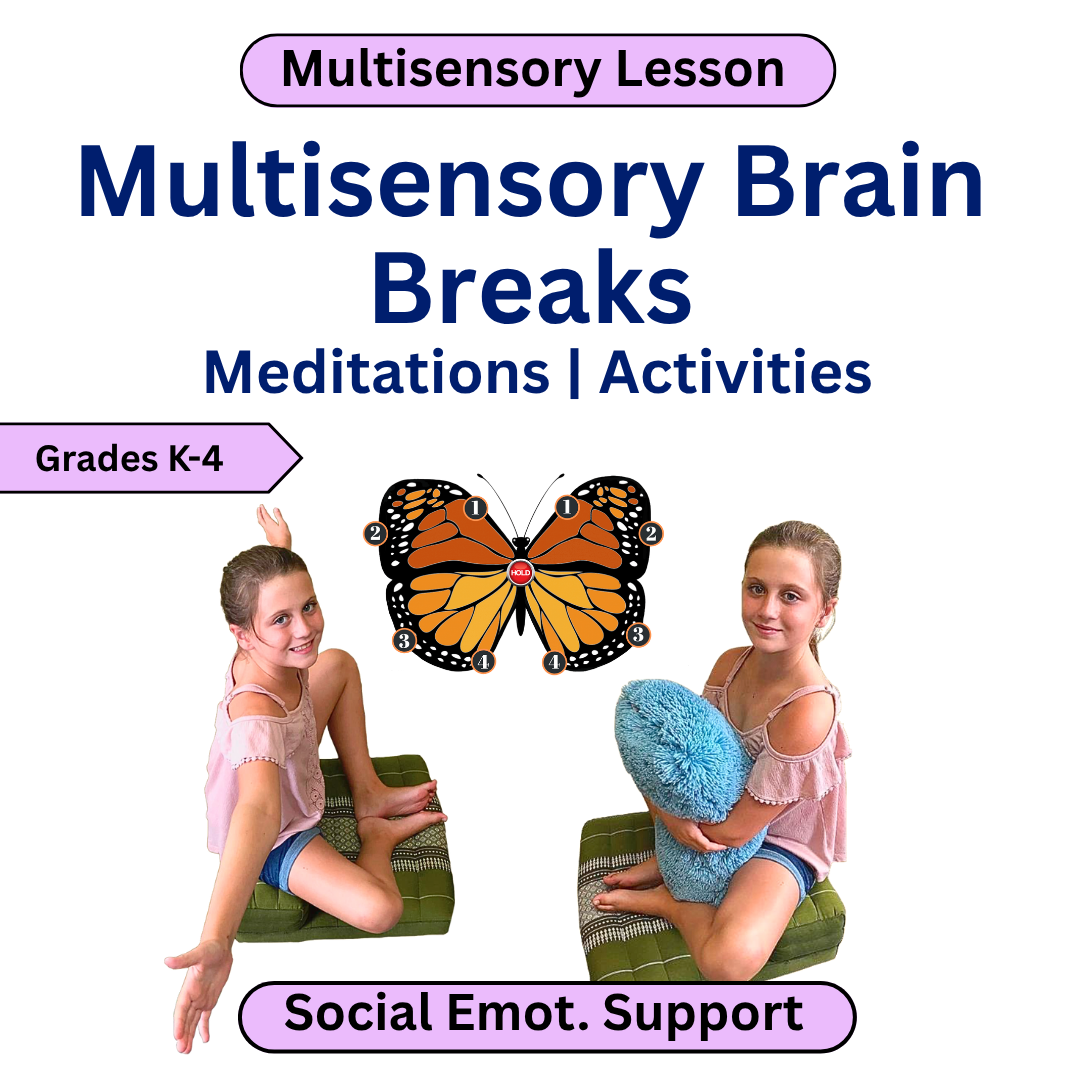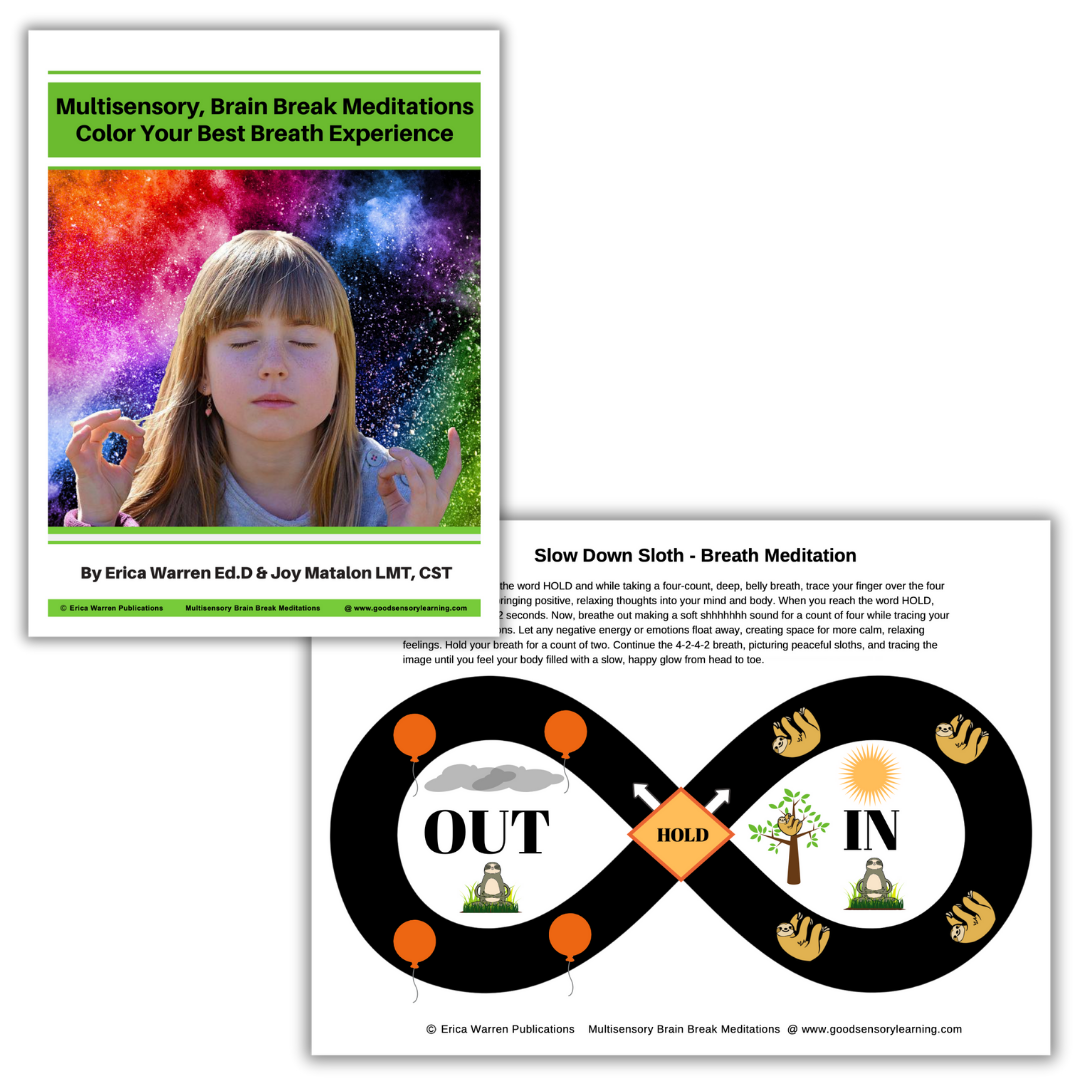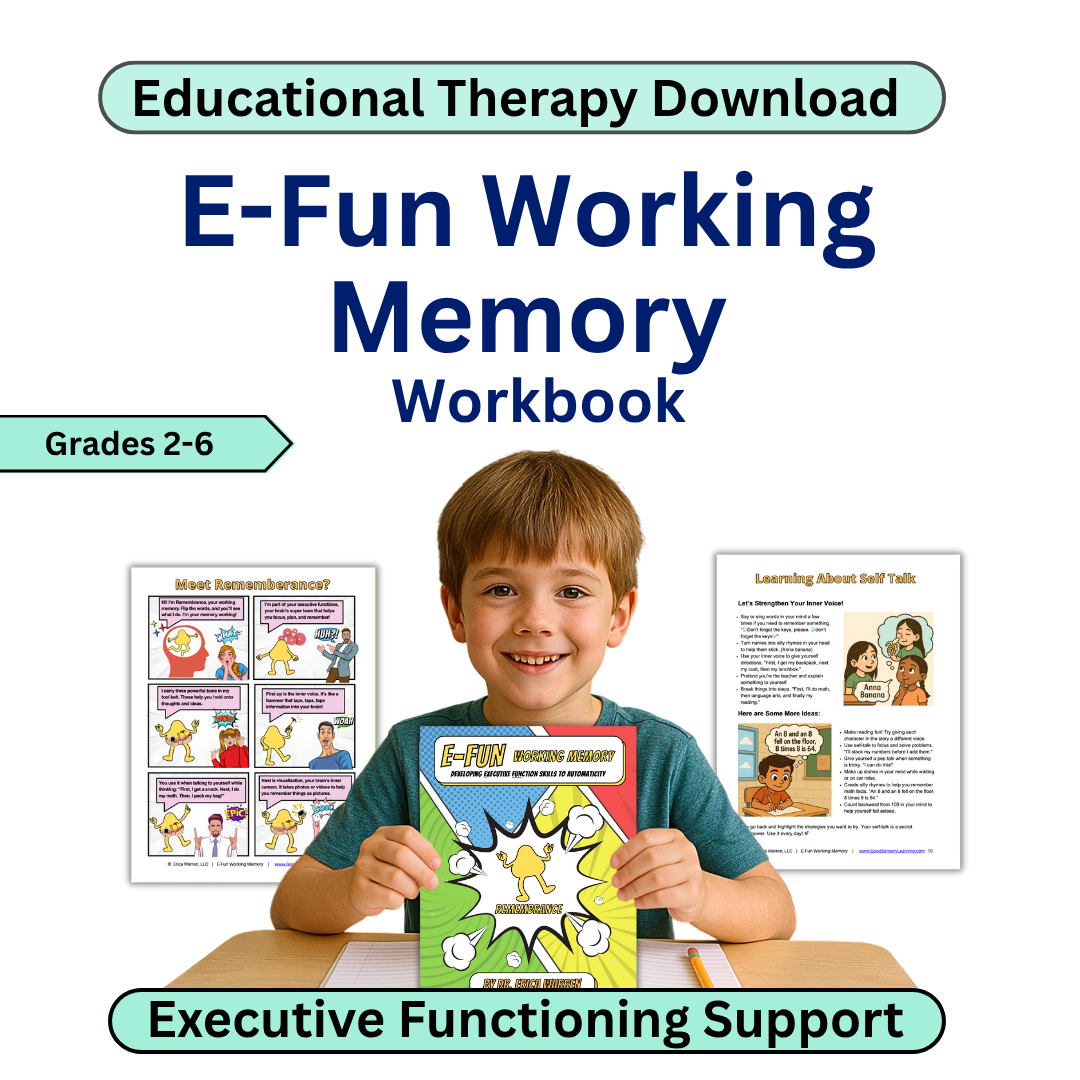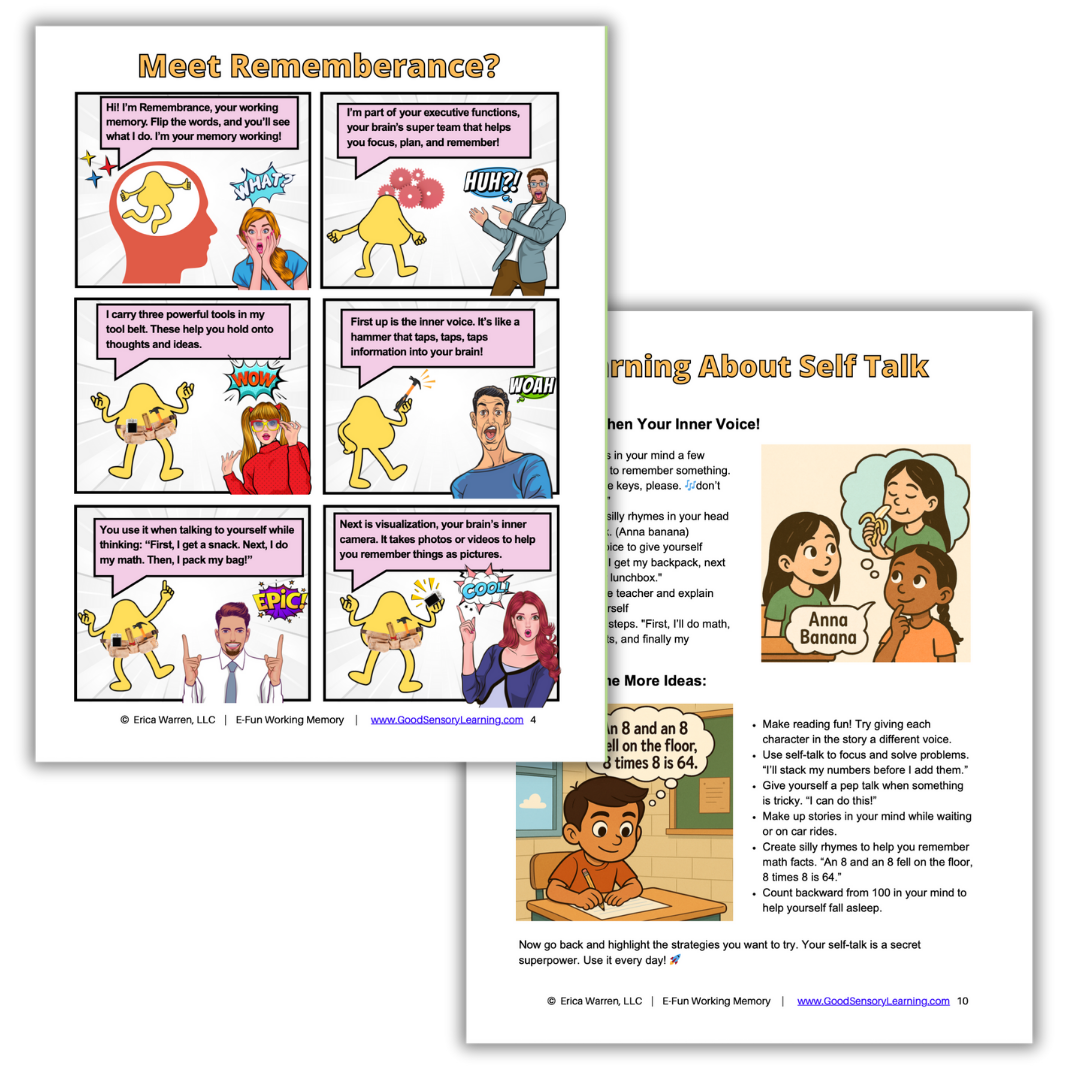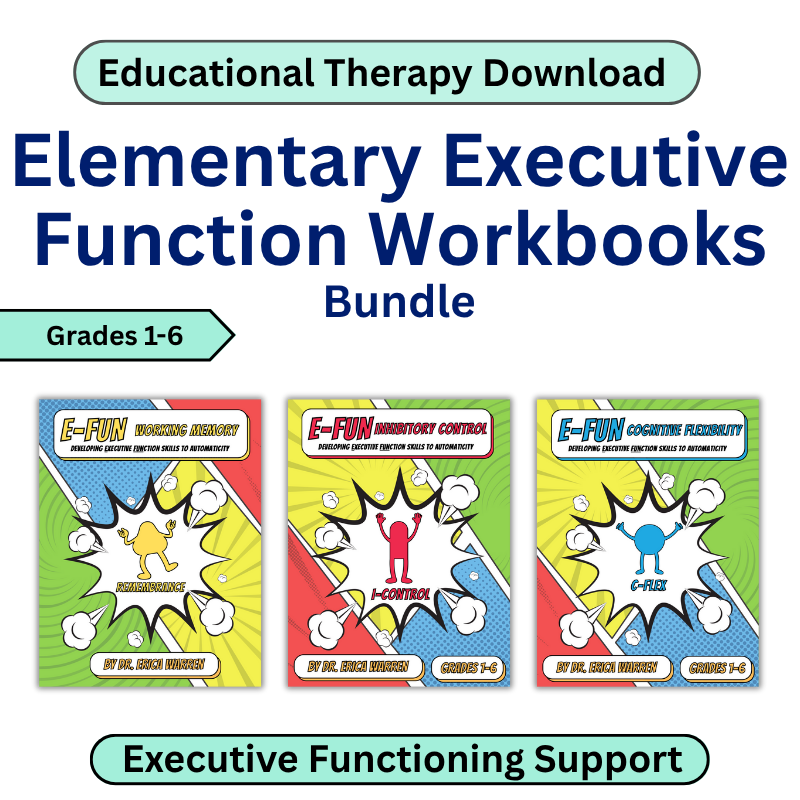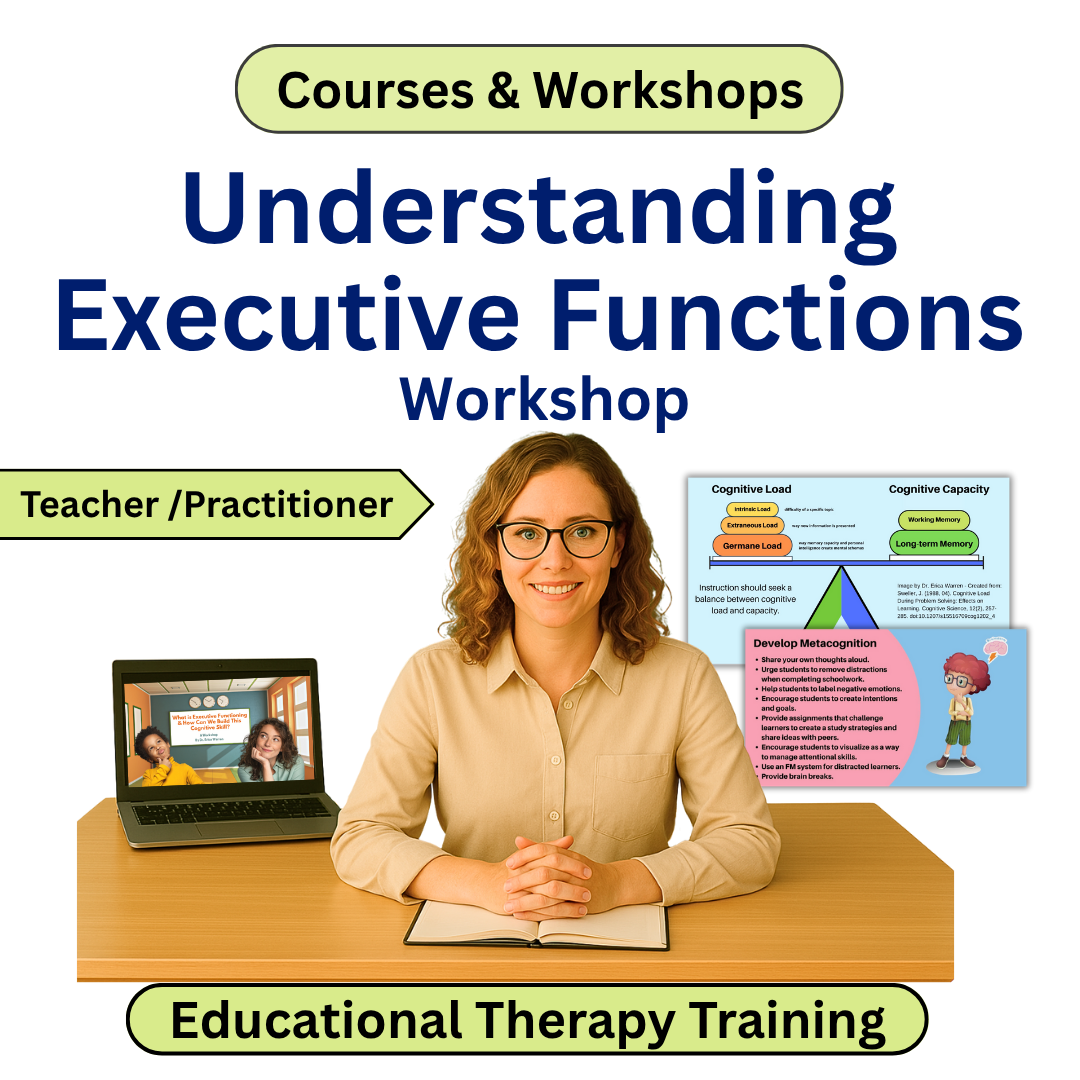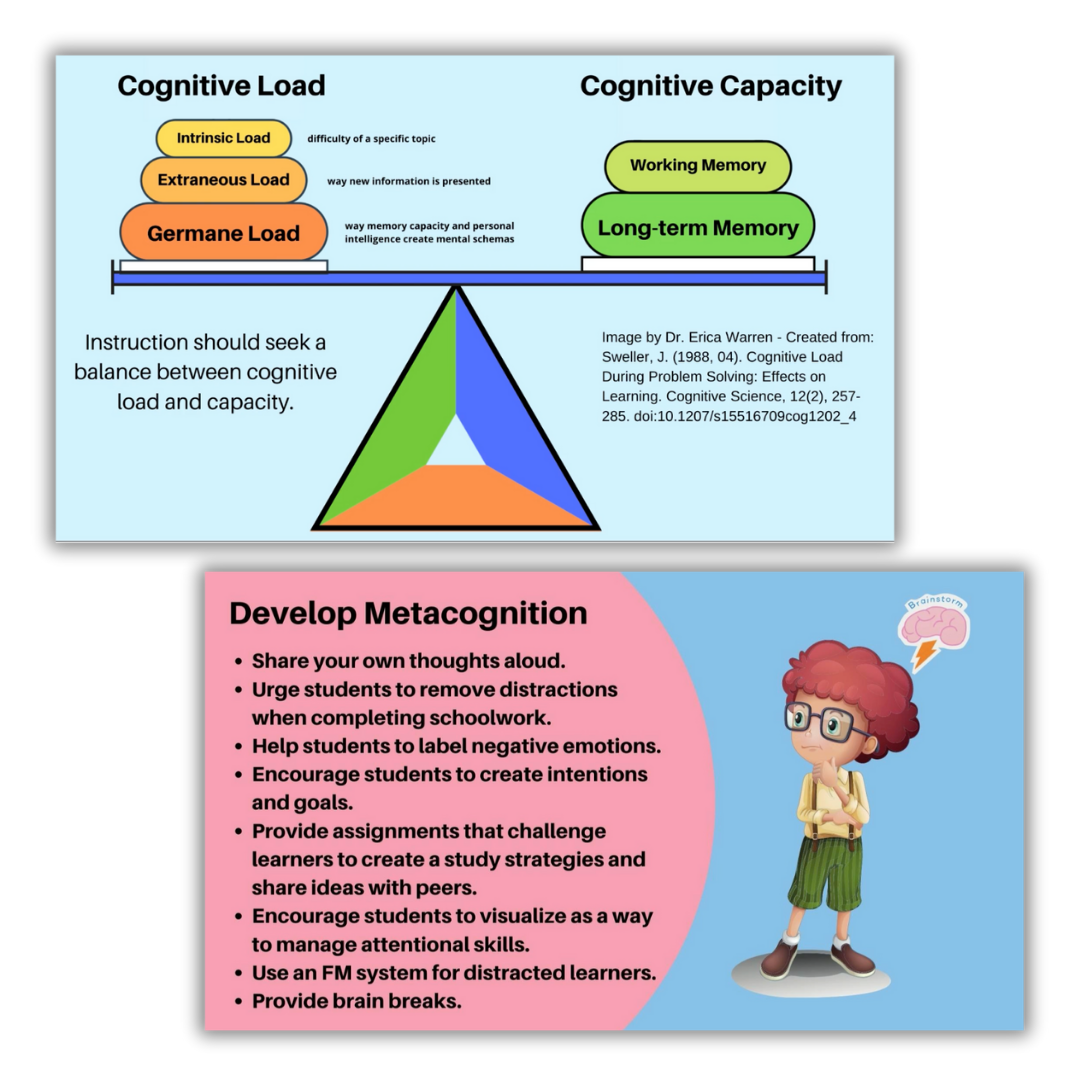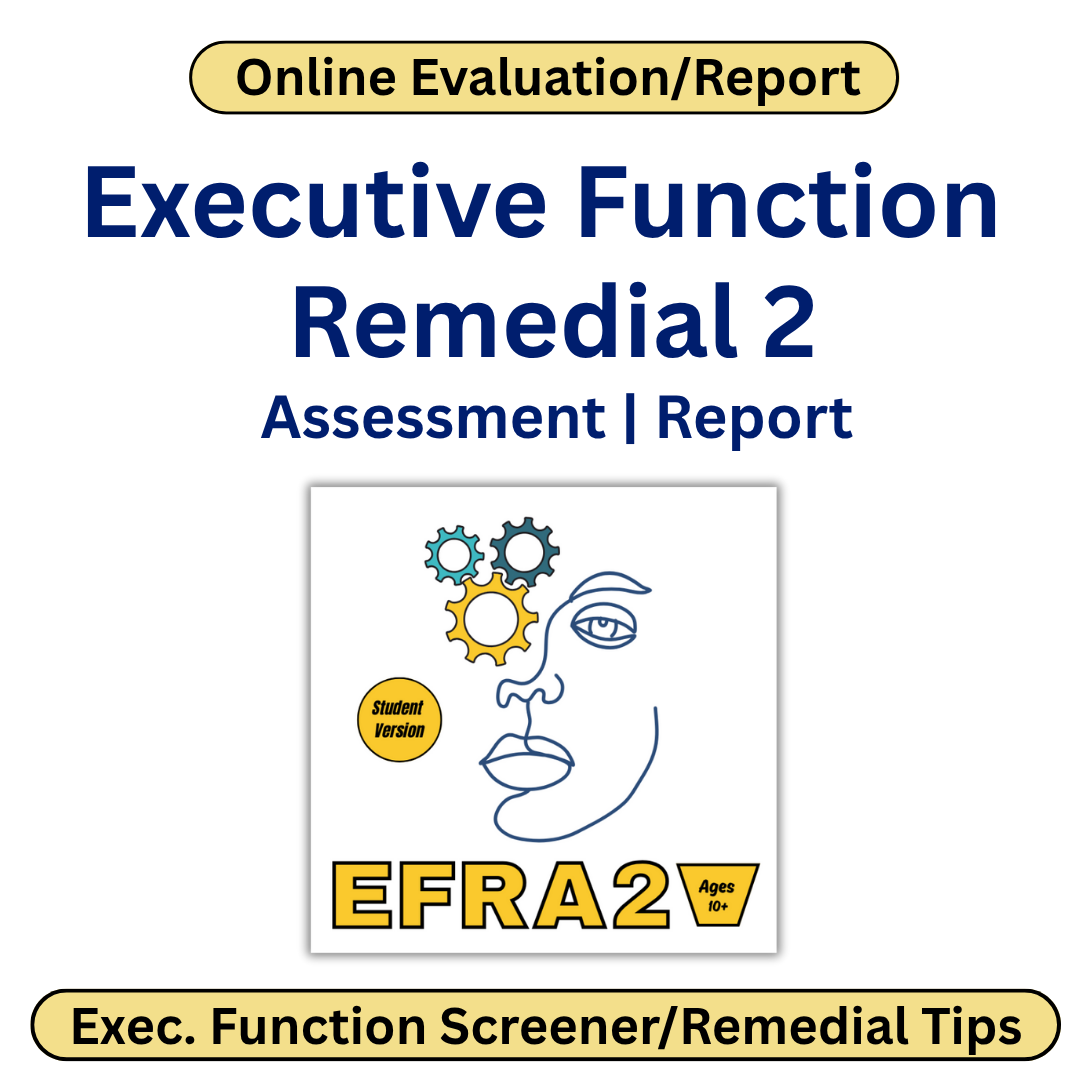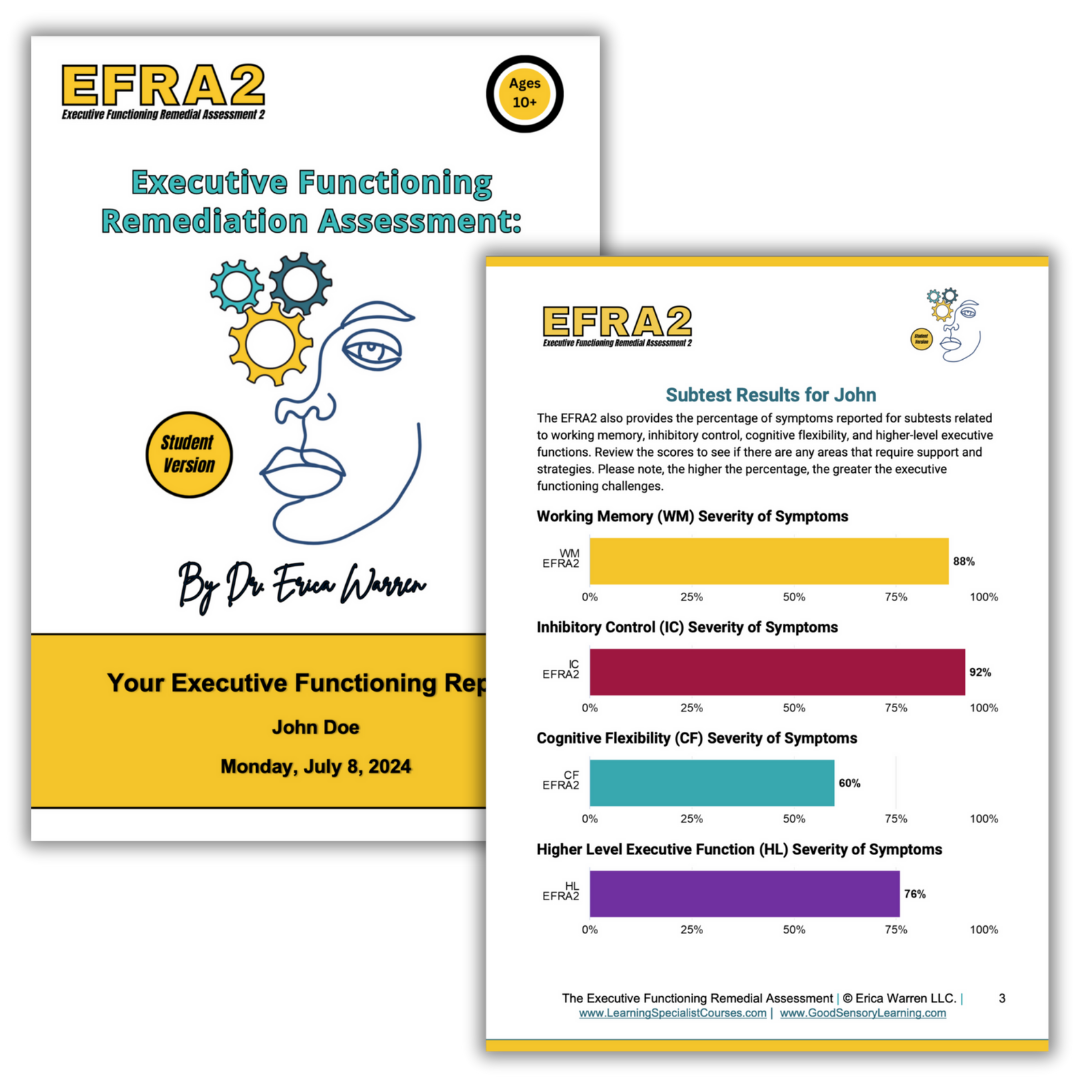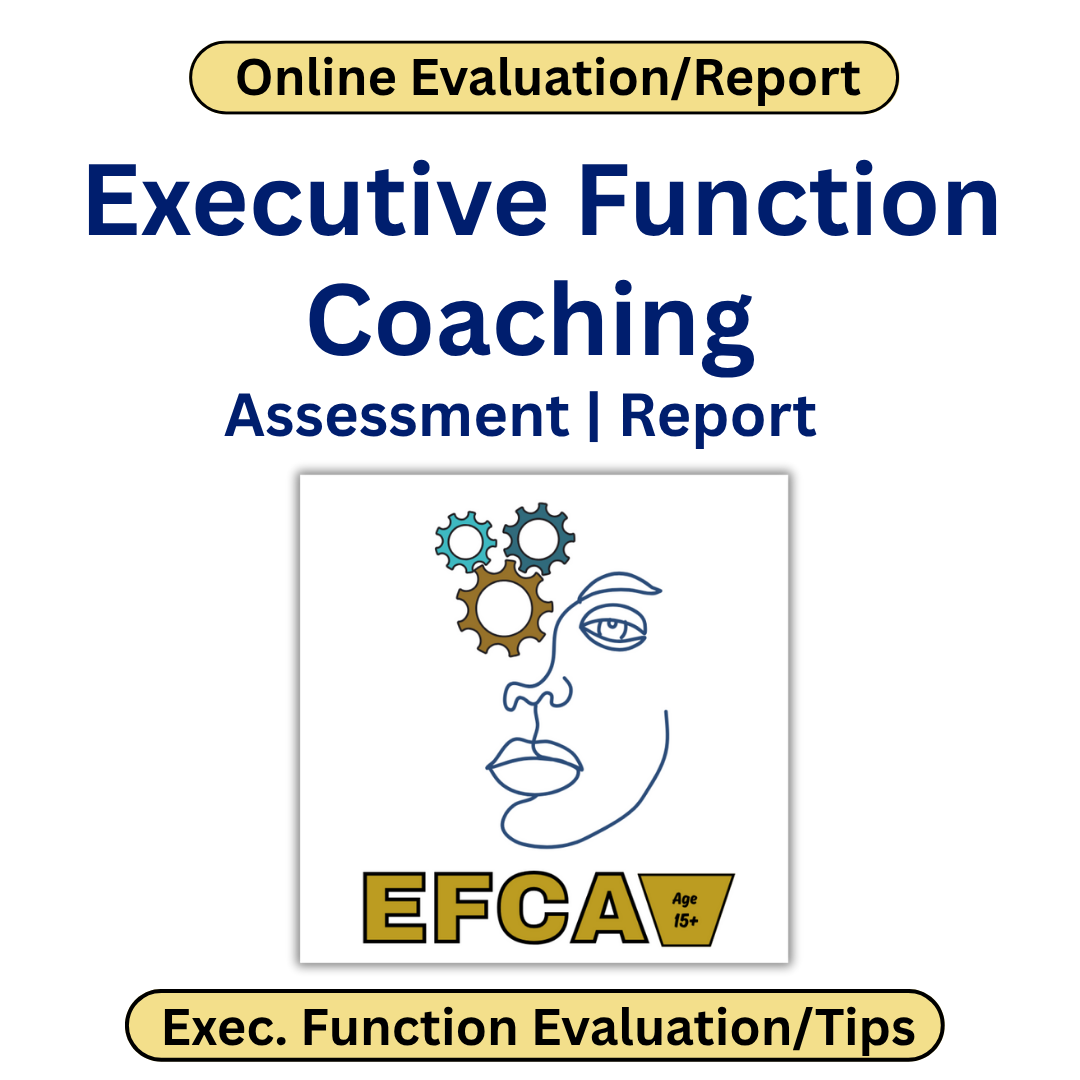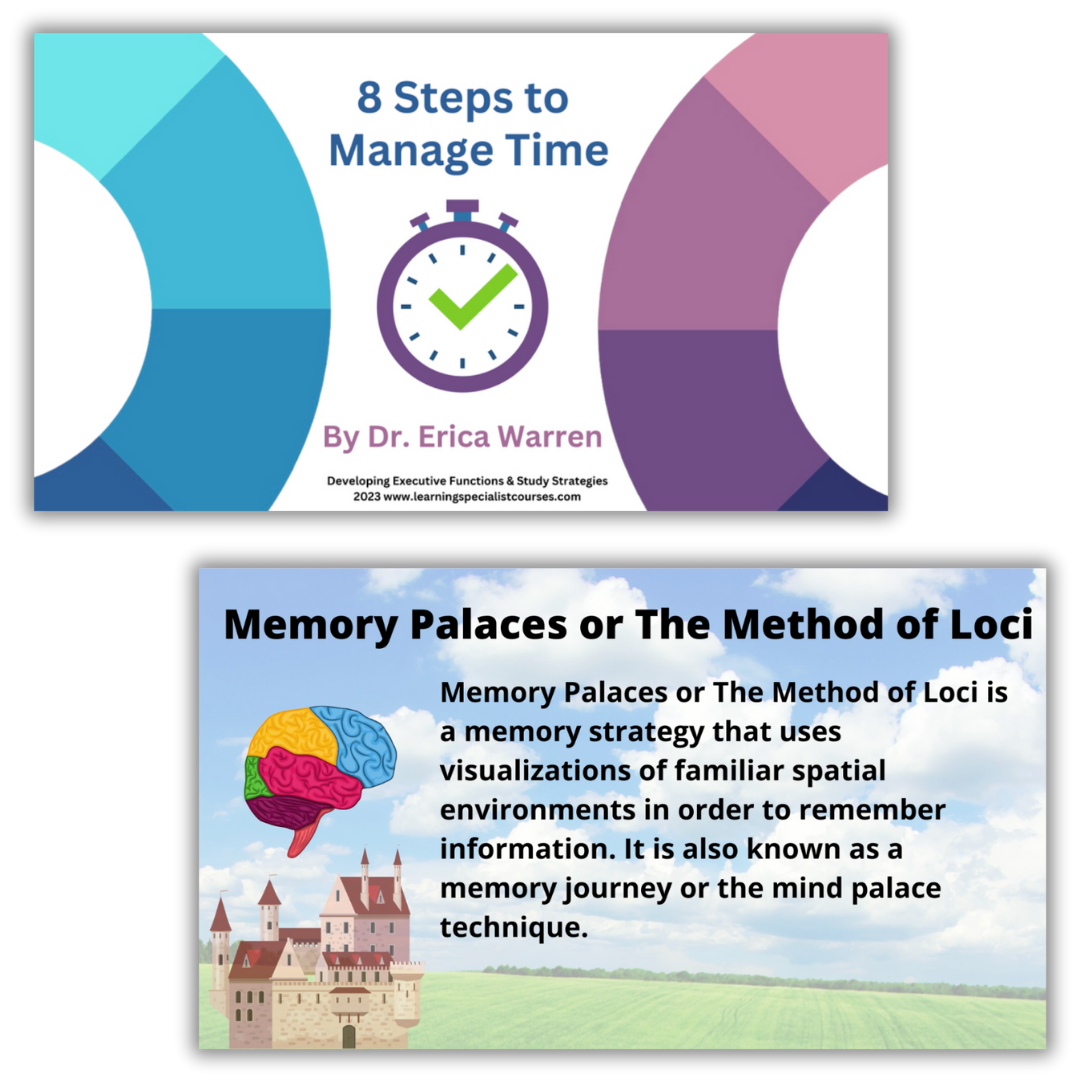Filters
Executive Functioning Remediation Assessment 1 | Comprehensive Report
Sale price$ 25.99 USD
Working Memory Bundle | Beginner & Intermediate Skill Builders
Sale price$ 39.99 USD
Planning, Time Management & Organization | Strategies | Handouts
Sale price$ 29.97 USD
Executive Function Card Games Bundle | Build Cognitive Skills
Sale price$ 39.99 USD
Following Directions Bundle | Primary, Beginner & Intermediate
Sale price$ 55.00 USD
Mindful Visualization | Comprehensive Resource for Optimal Learning
Sale price$ 19.99 USD
Working Memory, Hemisphere Integration & Attention | Intermediate Level
Sale price$ 21.99 USD
Reversing Rehearsals Primary | Early Learning Remedial Activities
Sale price$ 19.99 USD
Memory Master | Executive Function Card Game
Sale price$ 12.99 USD
Following Directions | Beginners Workbook | Activities
Sale price$ 19.99 USD
Following Directions | Intermediate Workbook | Activities
Sale price$ 19.99 USD
Working Memory, Hemisphere Integration & Attention | Beginners Level
Sale price$ 21.99 USD
Teaching Visualization Bundle | Beginner & Intermediate Games & Lessons
Sale price$ 49.99 USD
Executive Functioning Bundle | Cognitive Remediation Resources
Sale price$ 165.00 USD
Focus | Executive Function Card Game
Sale price$ 12.99 USD
In or Out | Executive Function Card Game
Sale price$ 12.99 USD
Ultimate Mindful & Editable Planner | Agenda PDF | PPT
Sale price$ 15.99 USD
MPower | Sorting Games for Building Executive Functions
Sale price$ 24.97 USD
Following Directions Holiday Bundle | Seasonal Language Games
Sale price$ 15.99 USD
Working Memory Task Cards | Executive Functioning Support
Sale price$ 12.97 USD
No Match Penguin Card Game | Strengthen Executive Functions
Sale price$ 12.99 USD
Teaching Visualization 1 | PowerPoint Beginners
Sale price$ 9.99 USD
Primary Cognitive Foundations Bundle | Foundational Skills for Reading & Math
Sale price$ 40.99 USD
Teaching Visualization 2 | PowerPoint Intermediate
Sale price$ 9.99 USD
Cognitive Flexibility | Executive Functioning Skills Workbook | Elementary Students
Sale price$ 17.99 USD
Inhibitory Control | Executive Functioning Skills Workbook | Elementary Students
Sale price$ 17.99 USD
Multisensory Brain Breaks | Meditations & Activities
Sale price$ 48.97 USD
Working Memory | Executive Functioning Skills Workbook | Elementary Students
Sale price$ 17.99 USD
Executive Function Workbook Bundle | Strengthen Core Cognitive Skills
Sale price$ 49.99 USD
Executive Functions | In-depth Exploration | Workshop with Dr. Warren
Sale price$ 49.99 USD
Executive Functioning Remediation Assessment 2 | Comprehensive Report
Sale price$ 25.99 USD
Executive Functioning Coaching Assessment | Comprehensive Report
Sale price$ 25.99 USD
Executive Functioning & Study Strategies | Coaching Course & Materials
Sale price$ 689.00 USD


